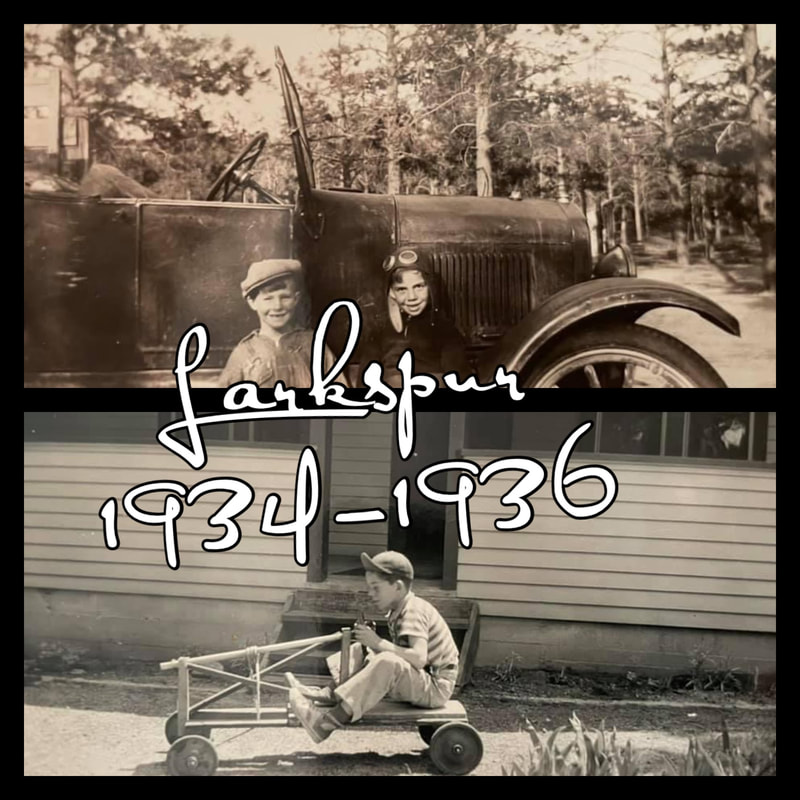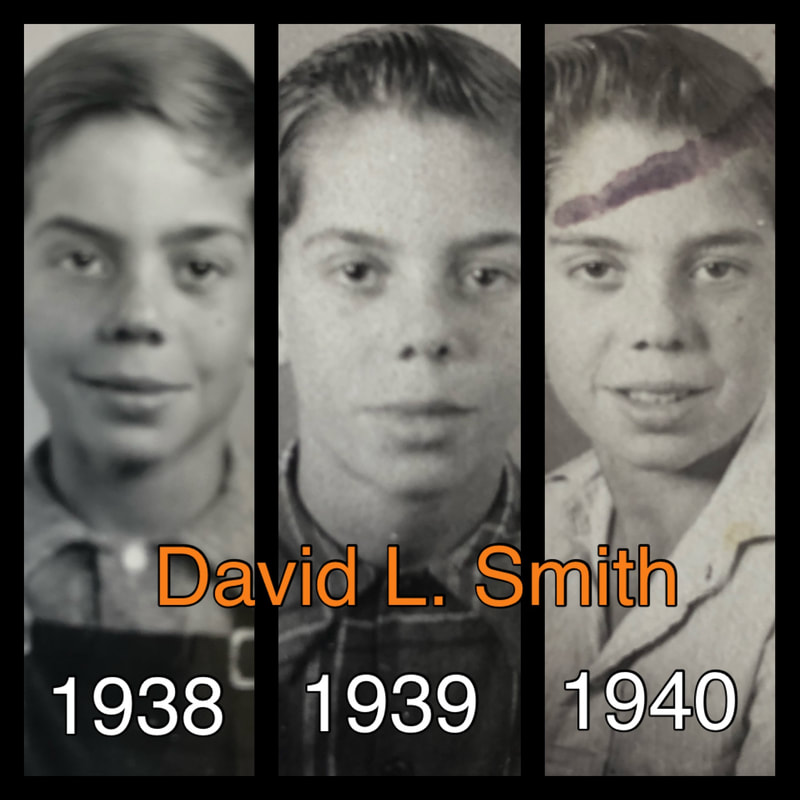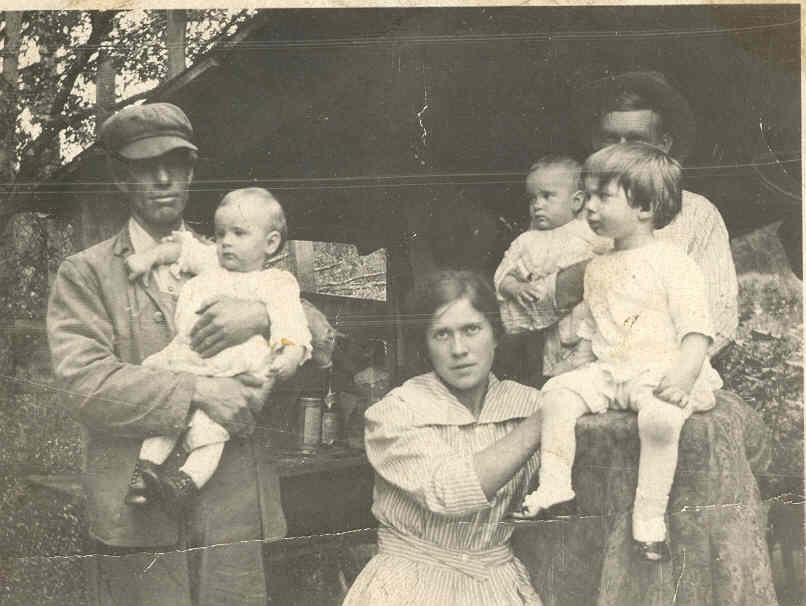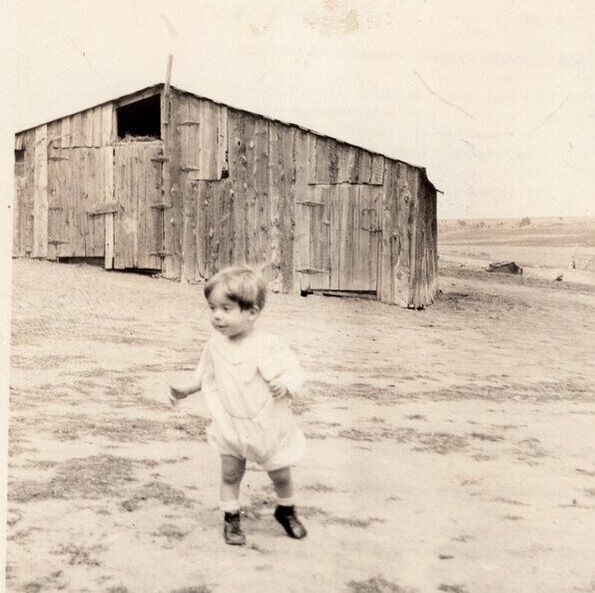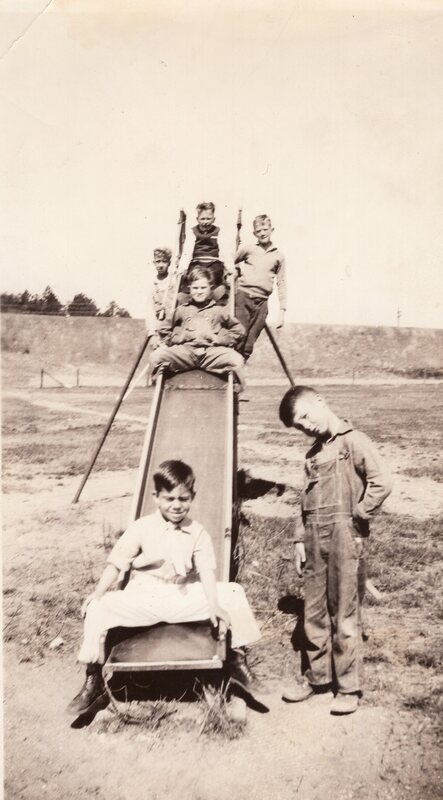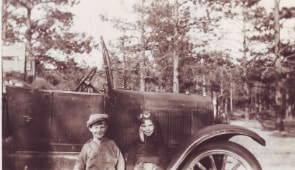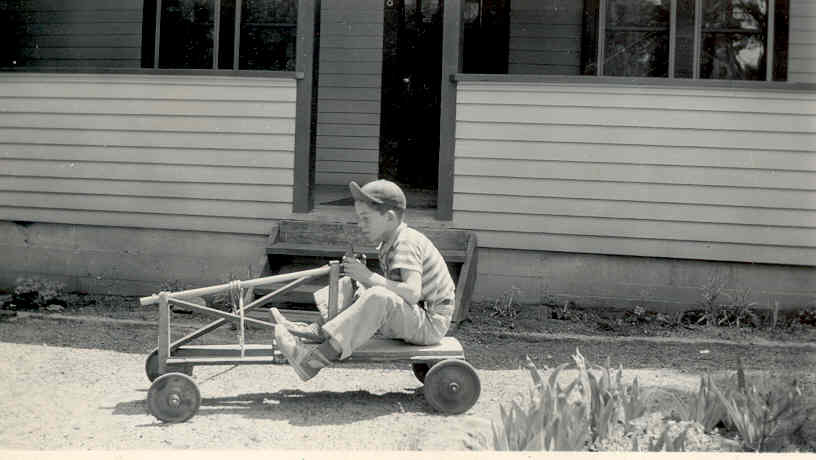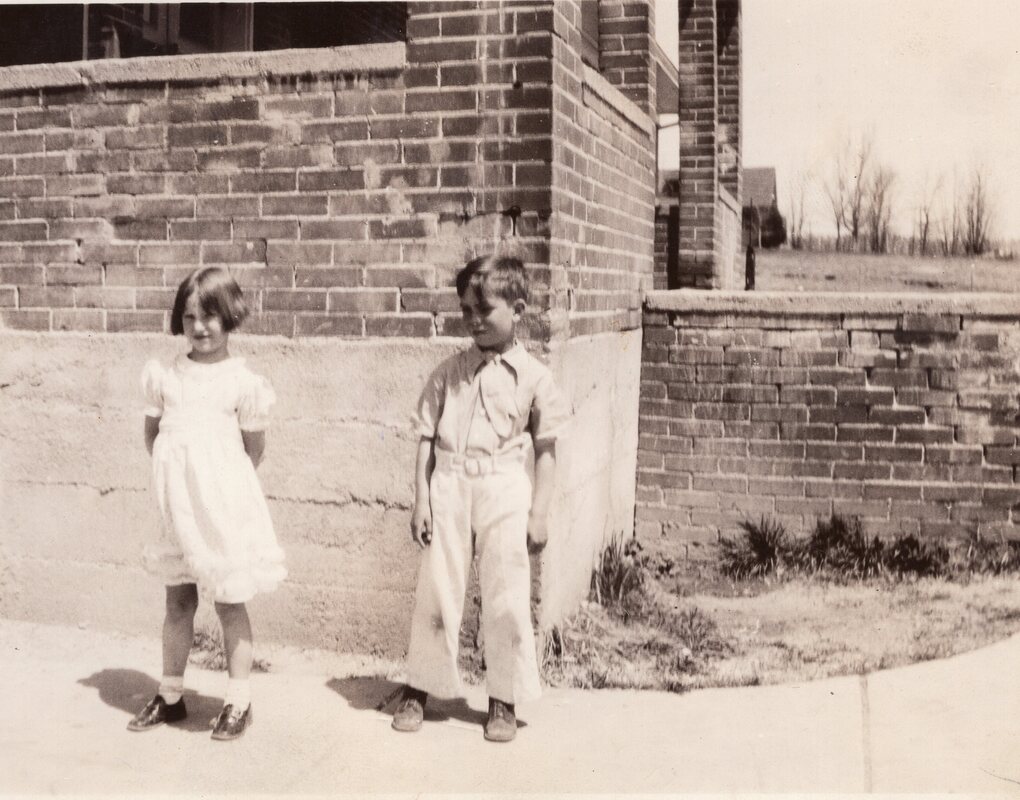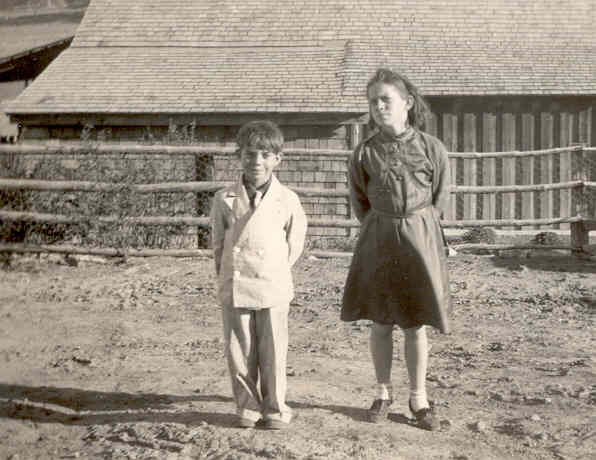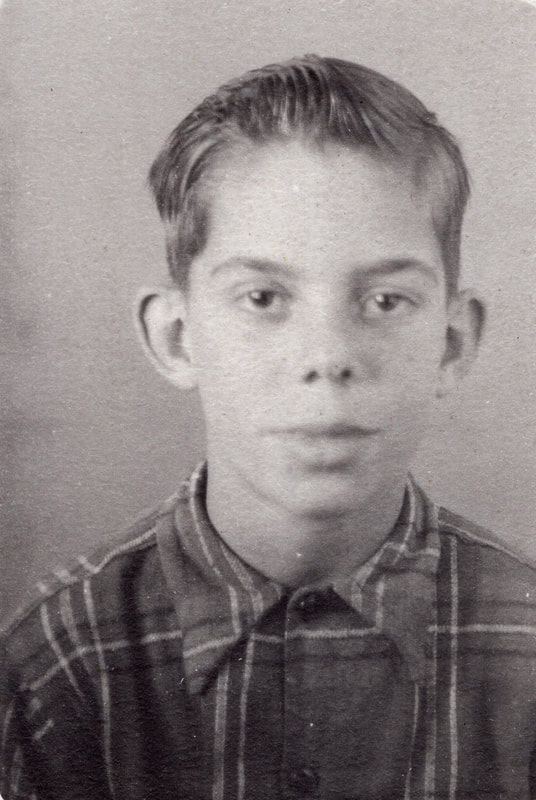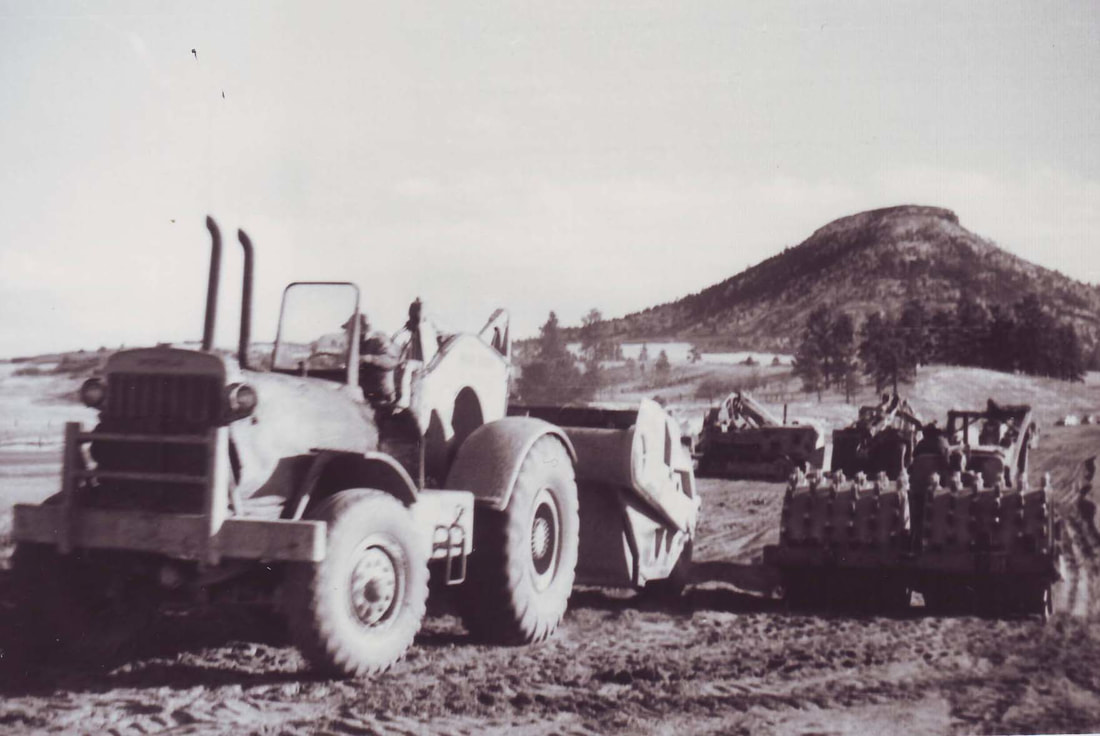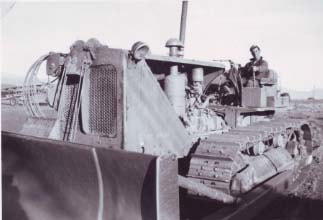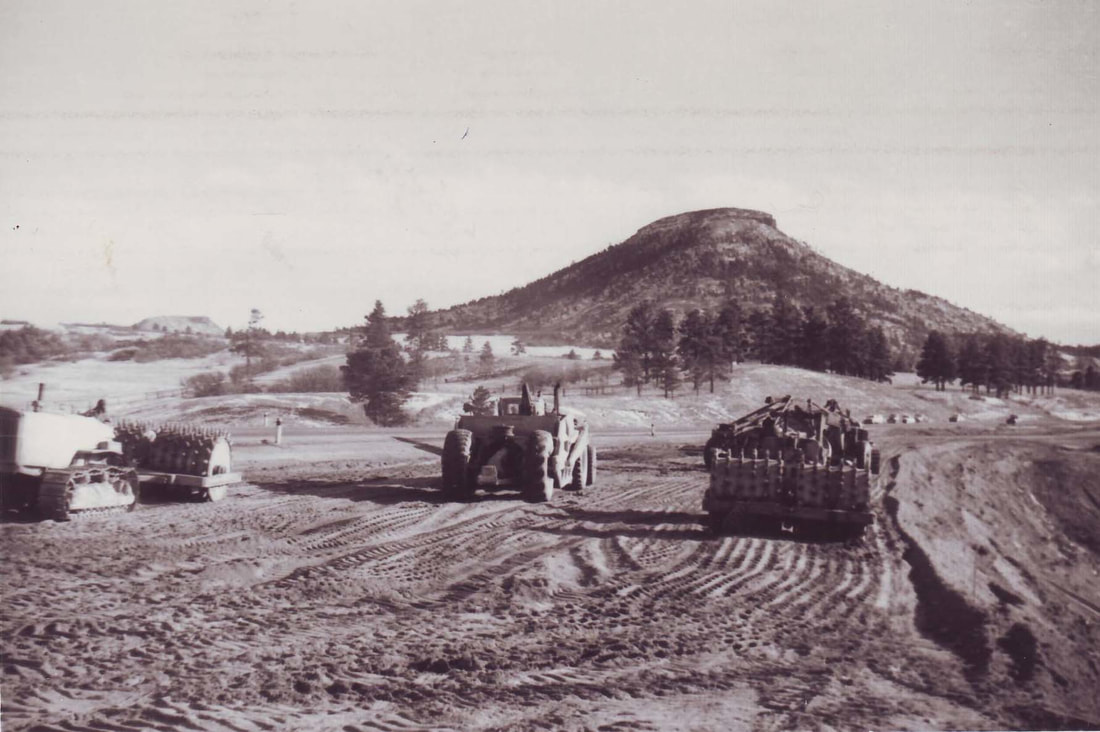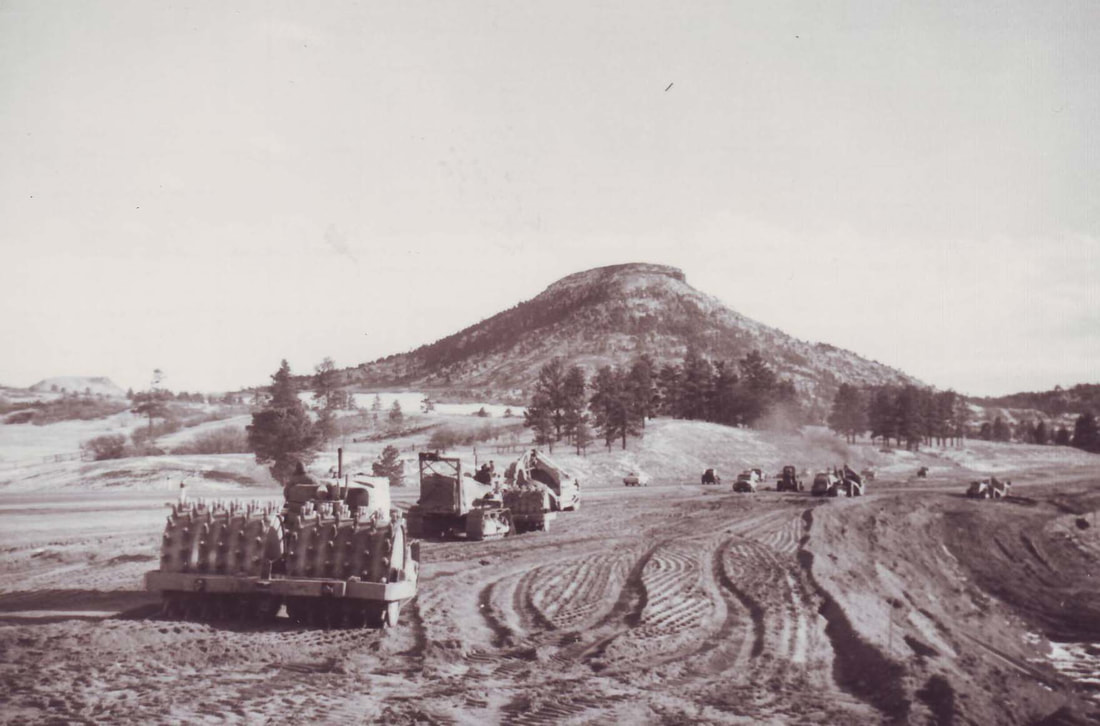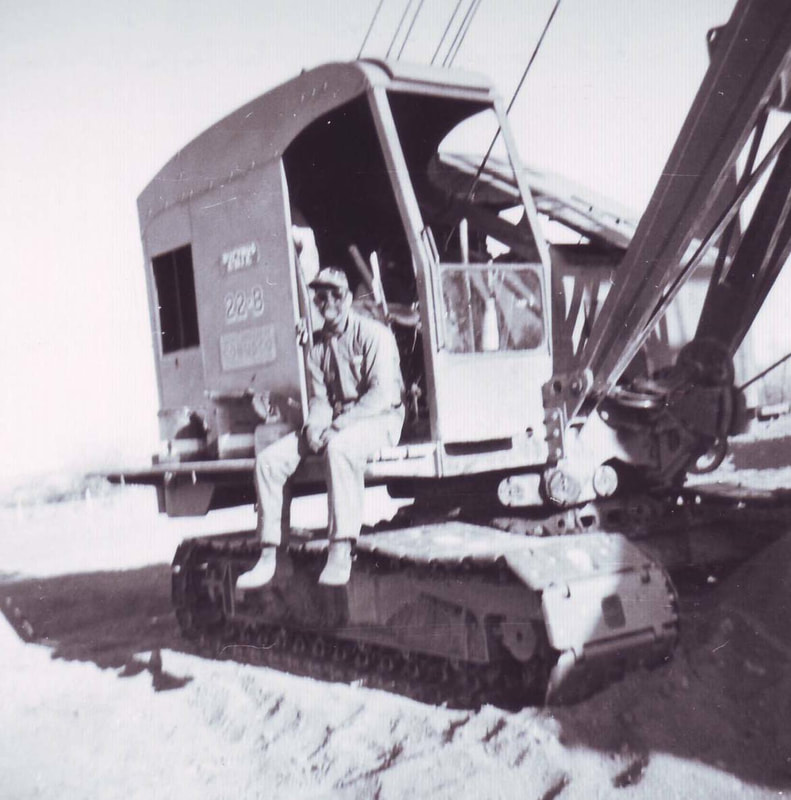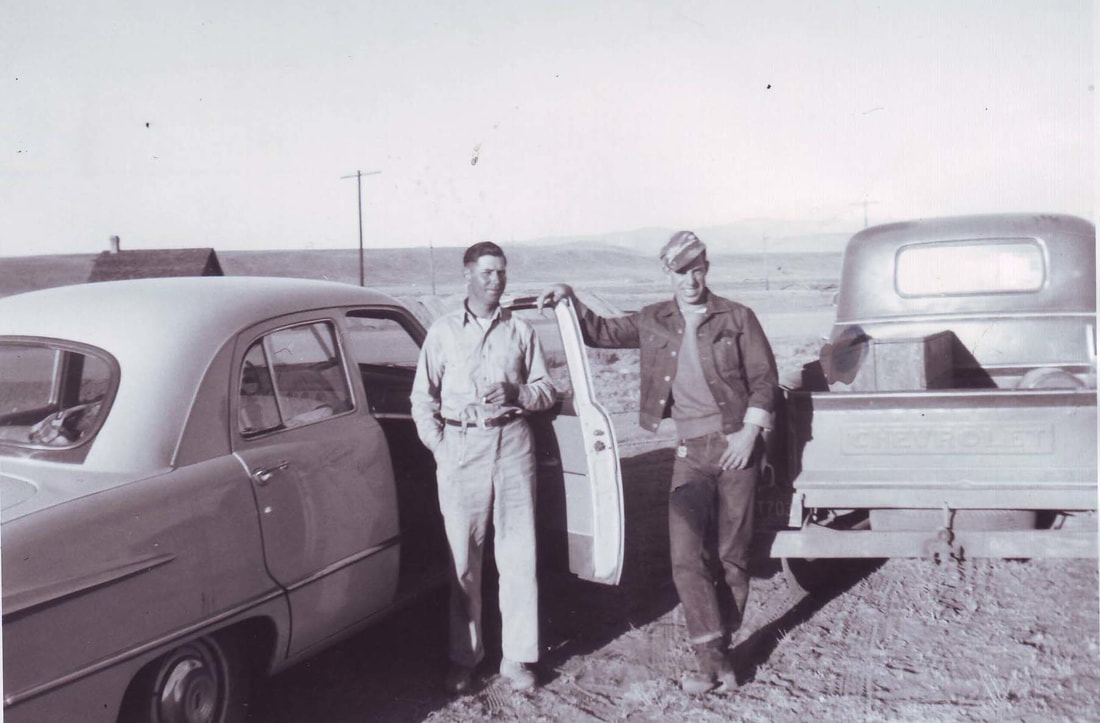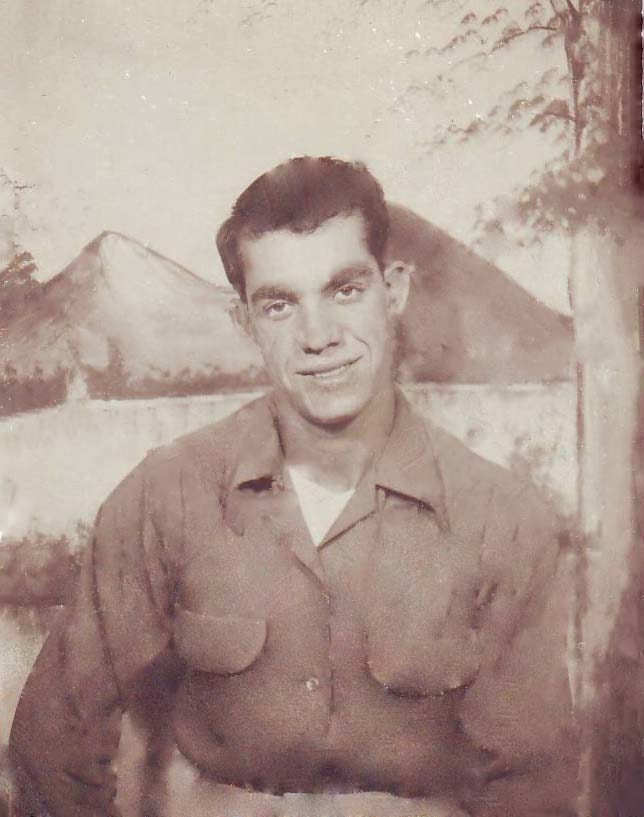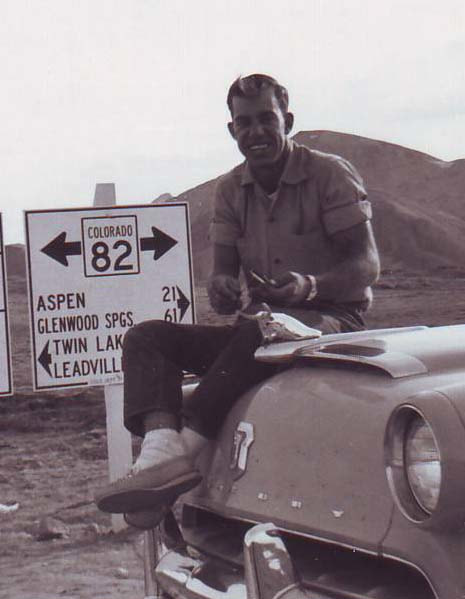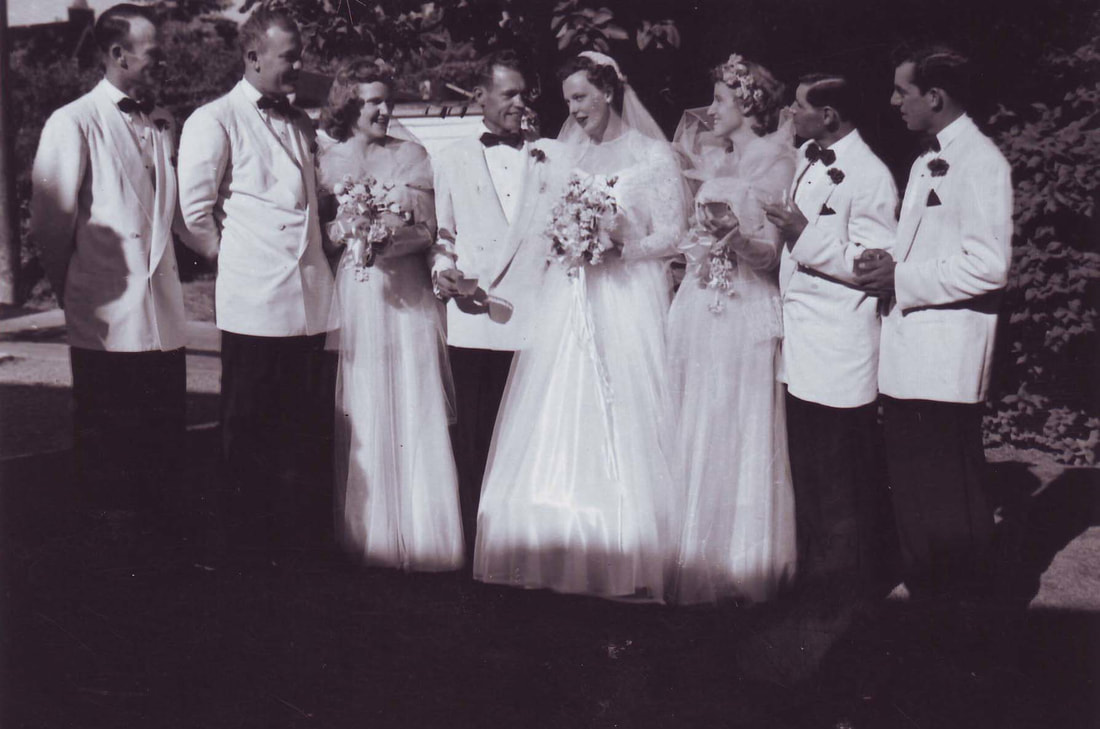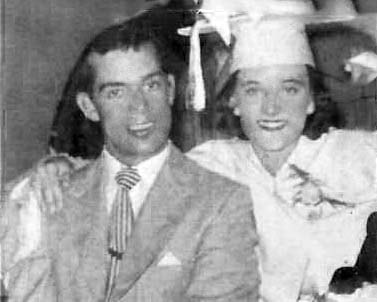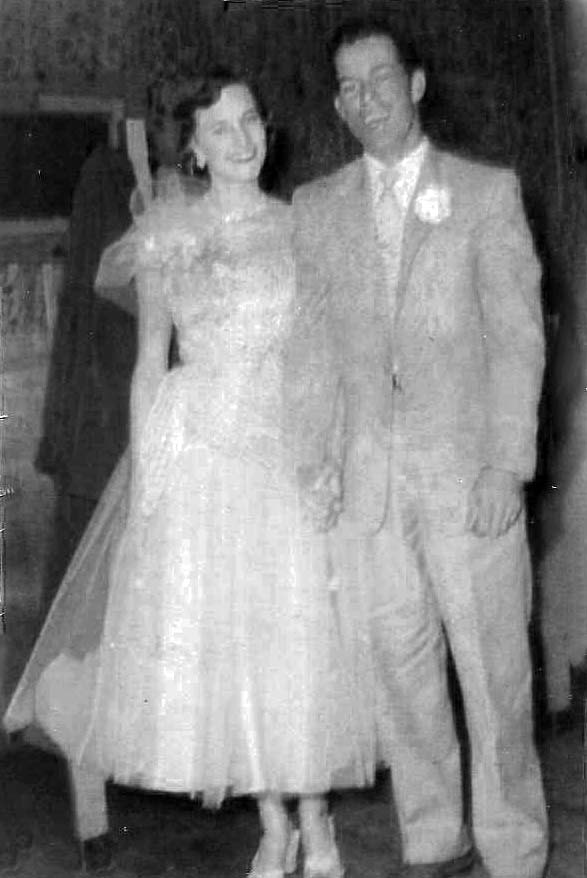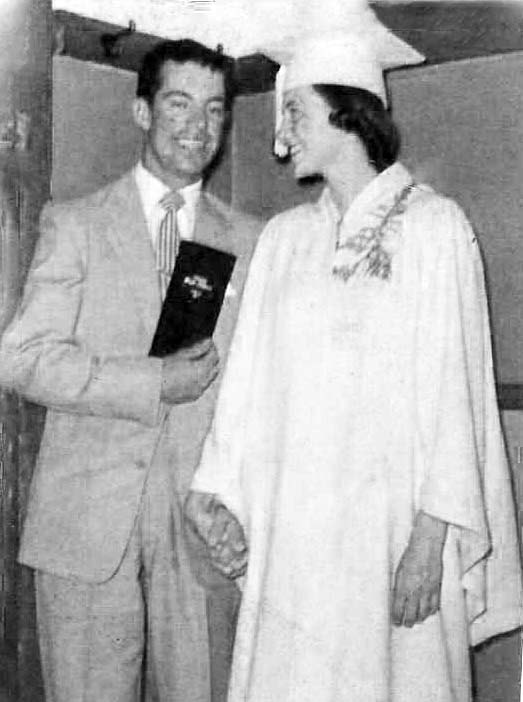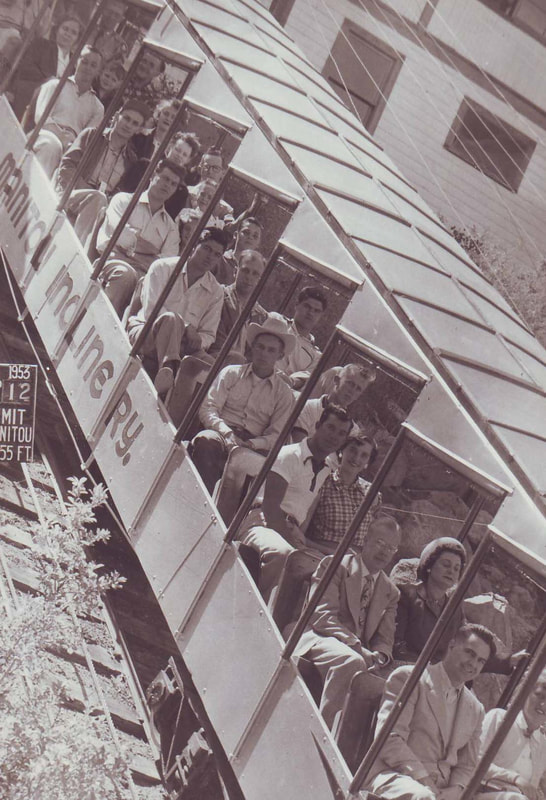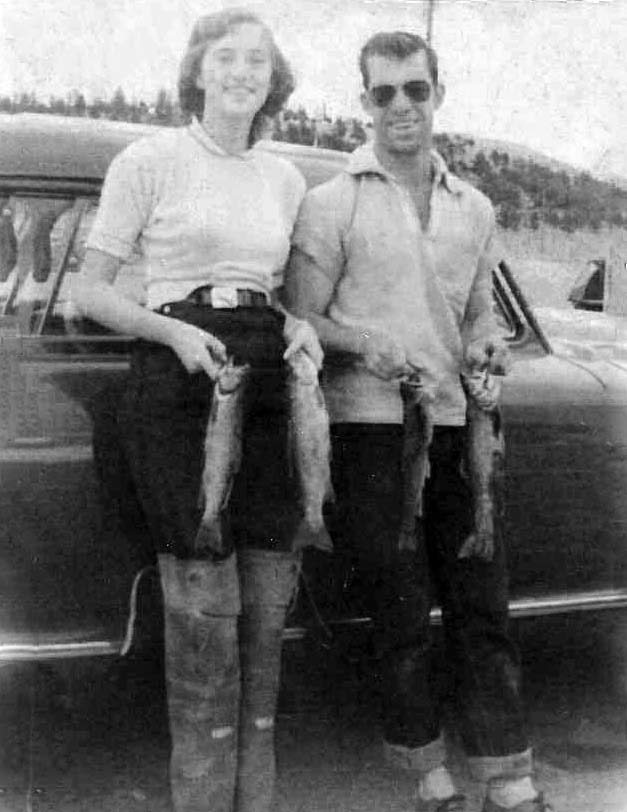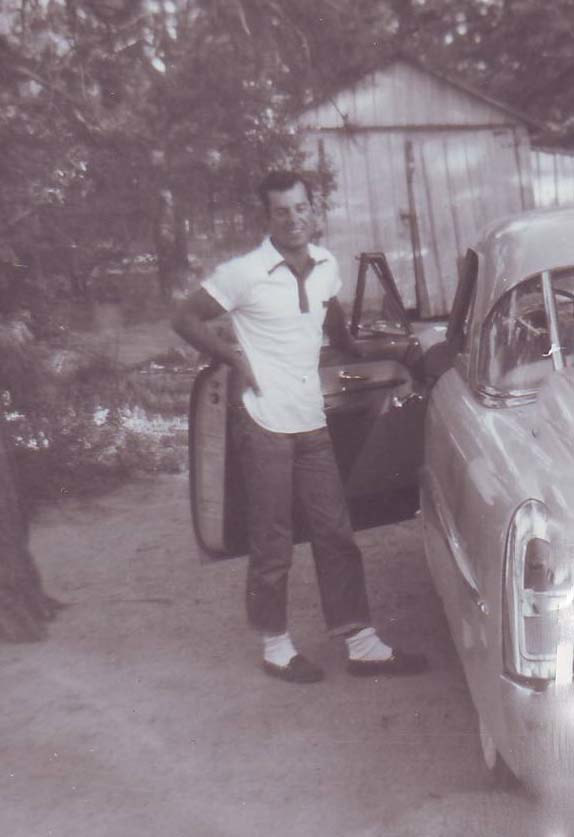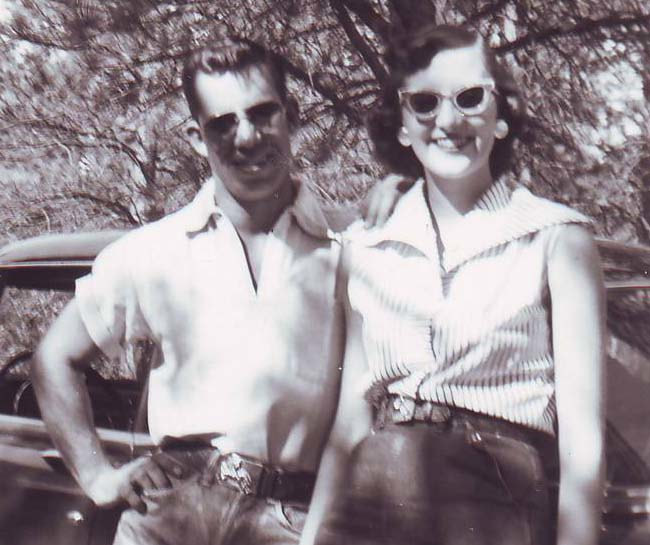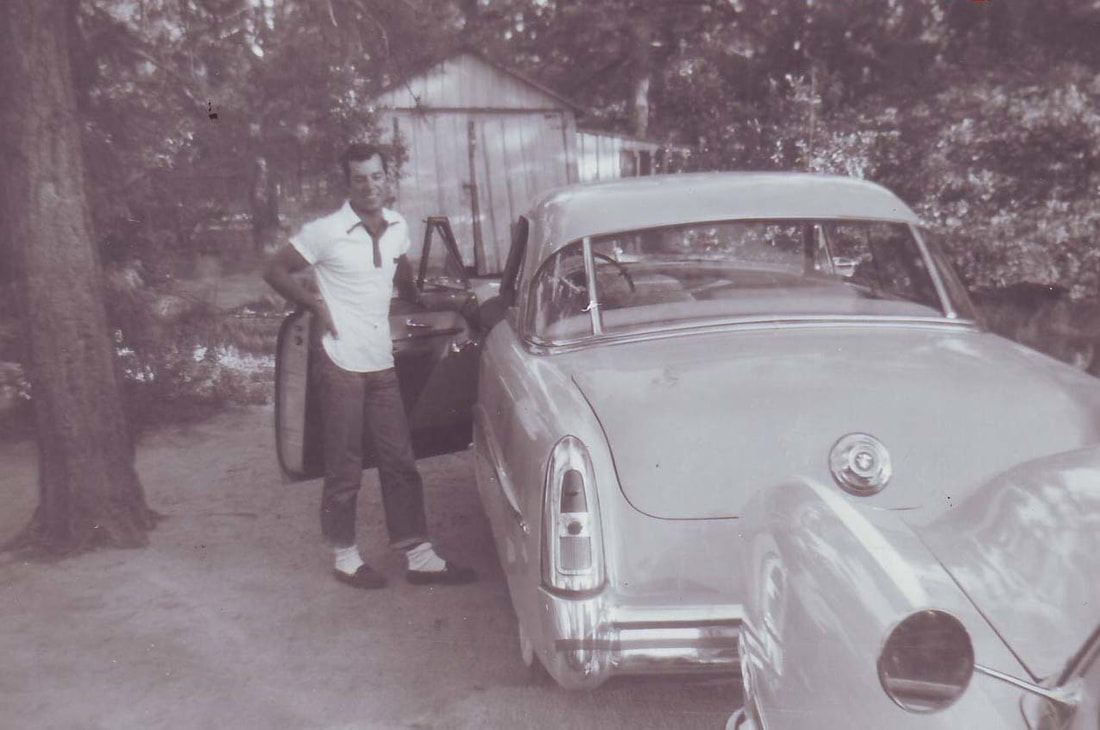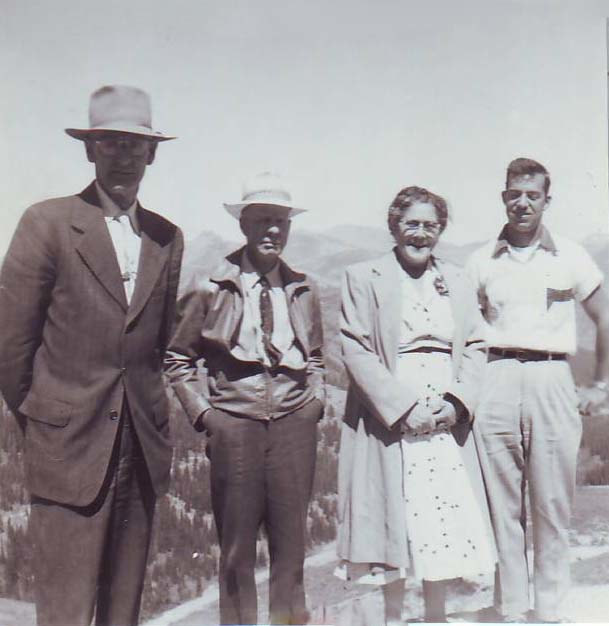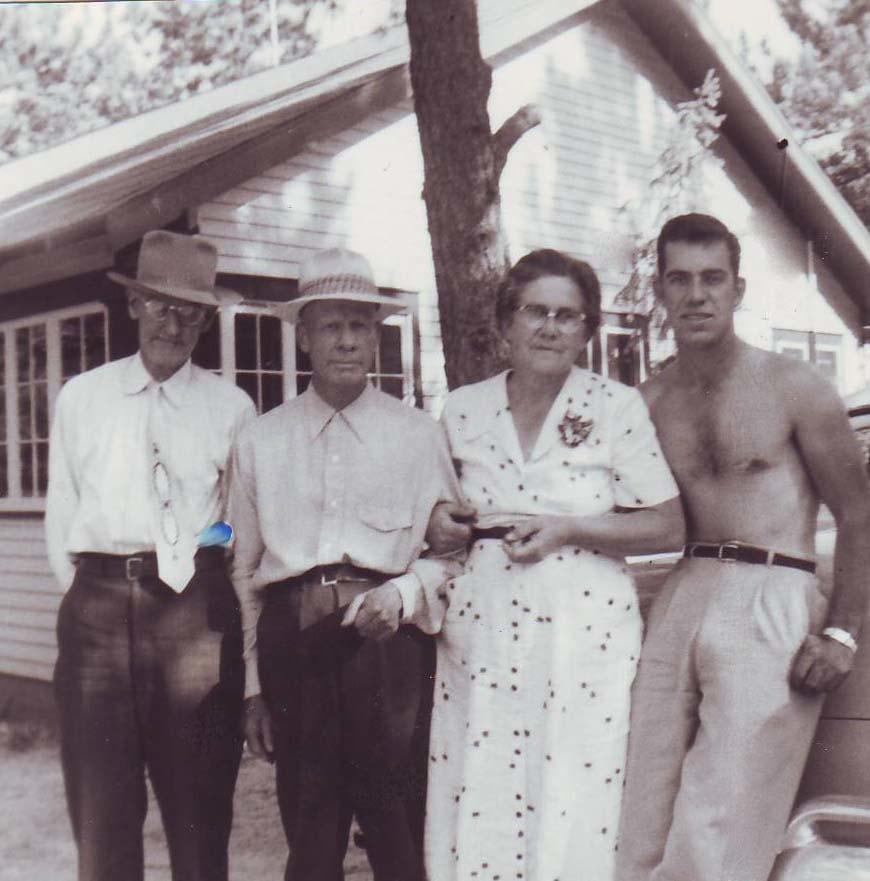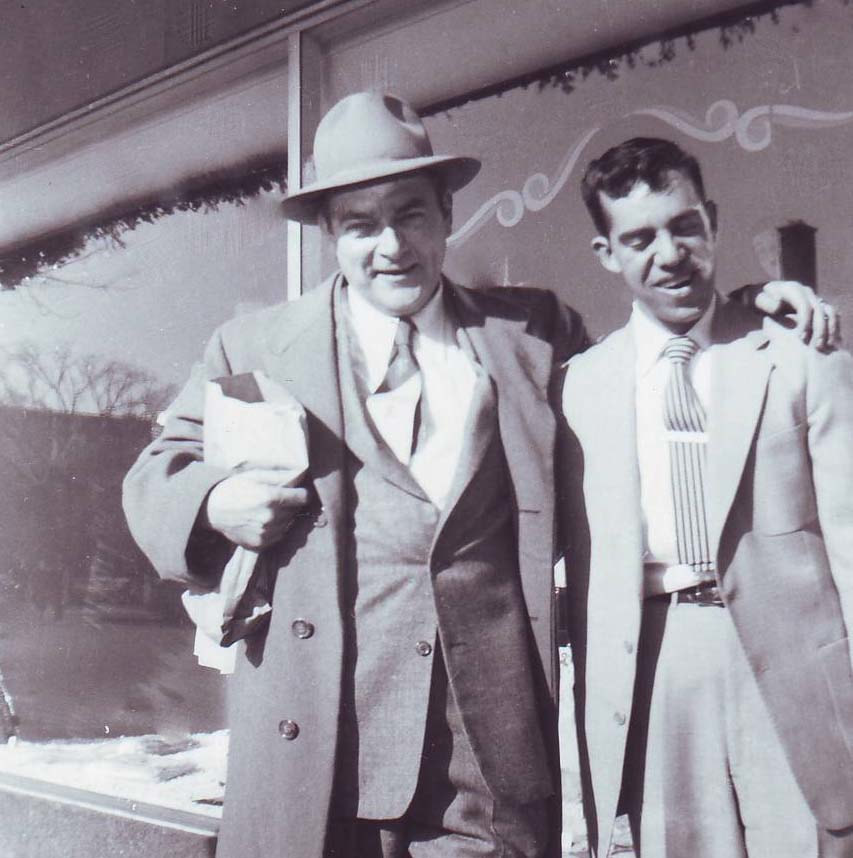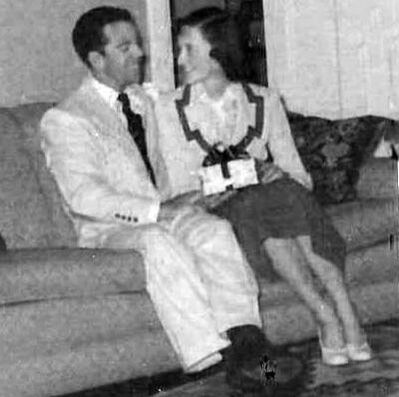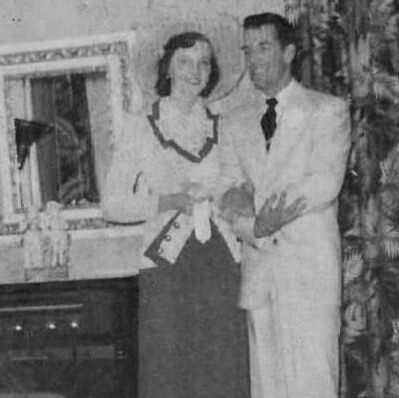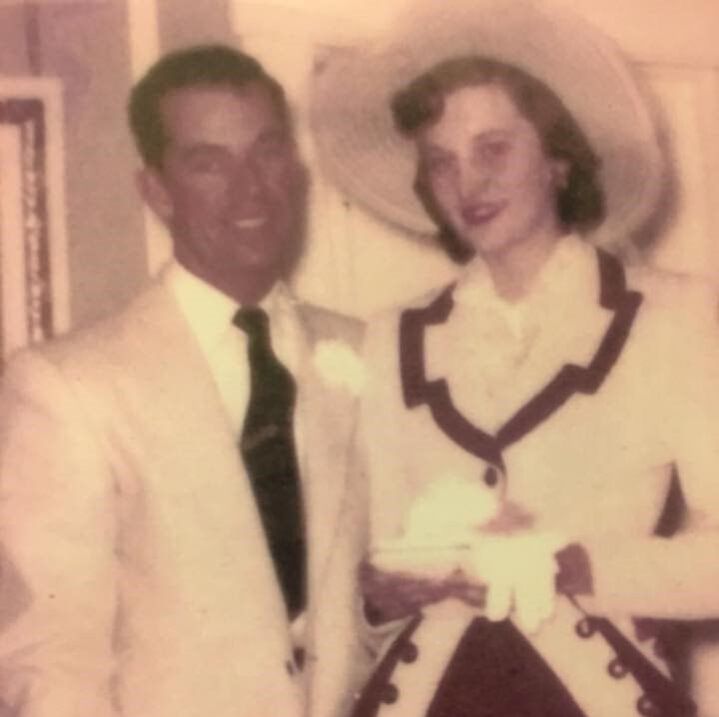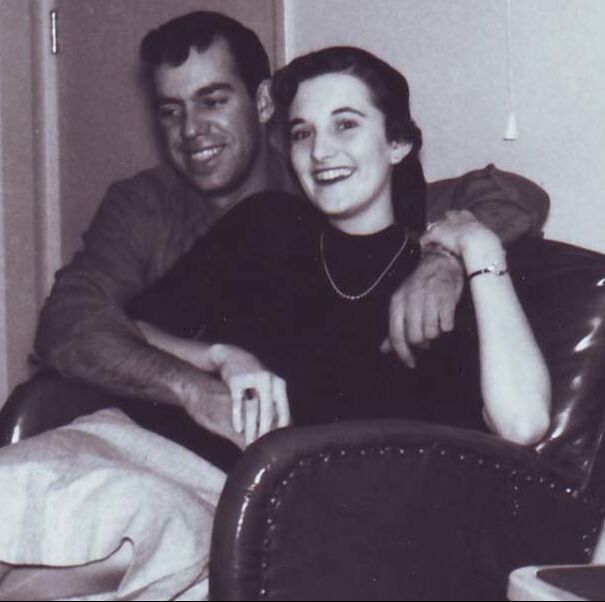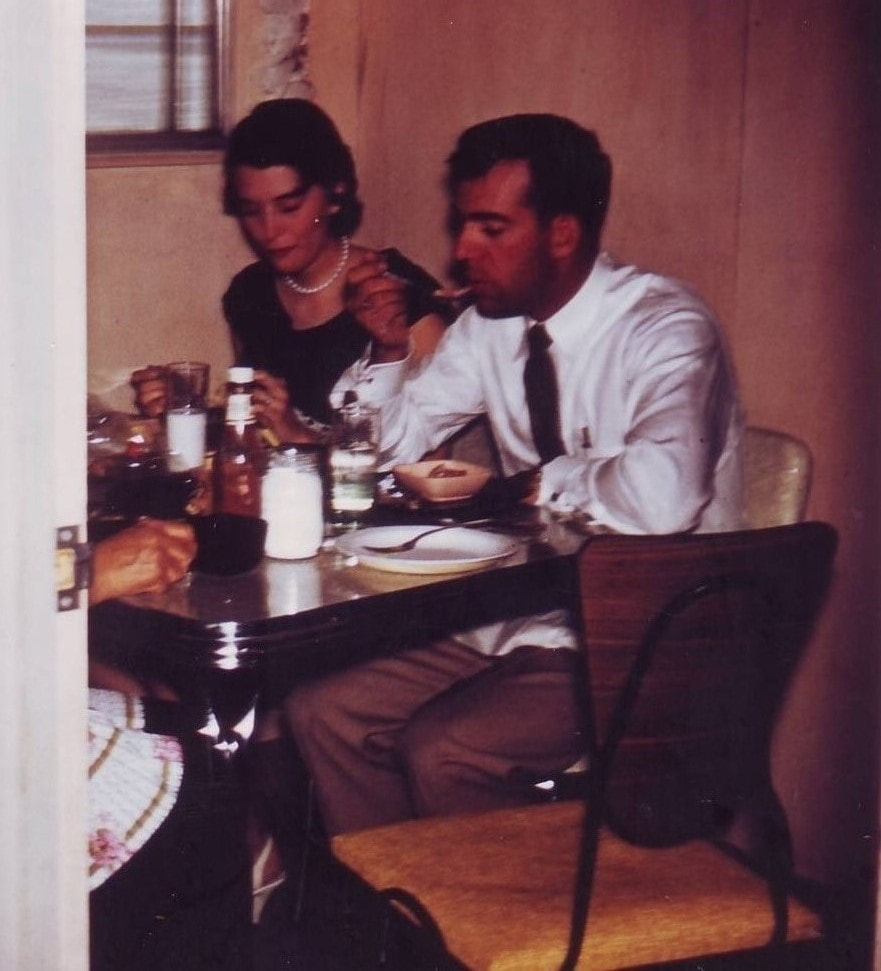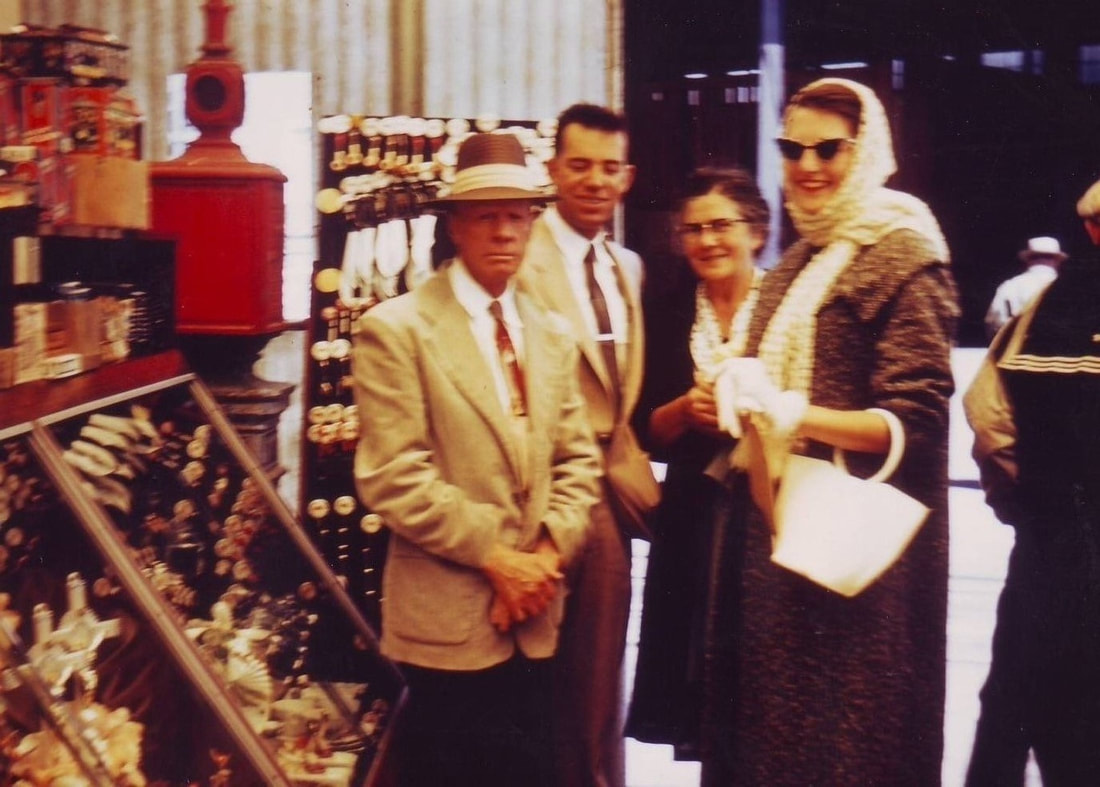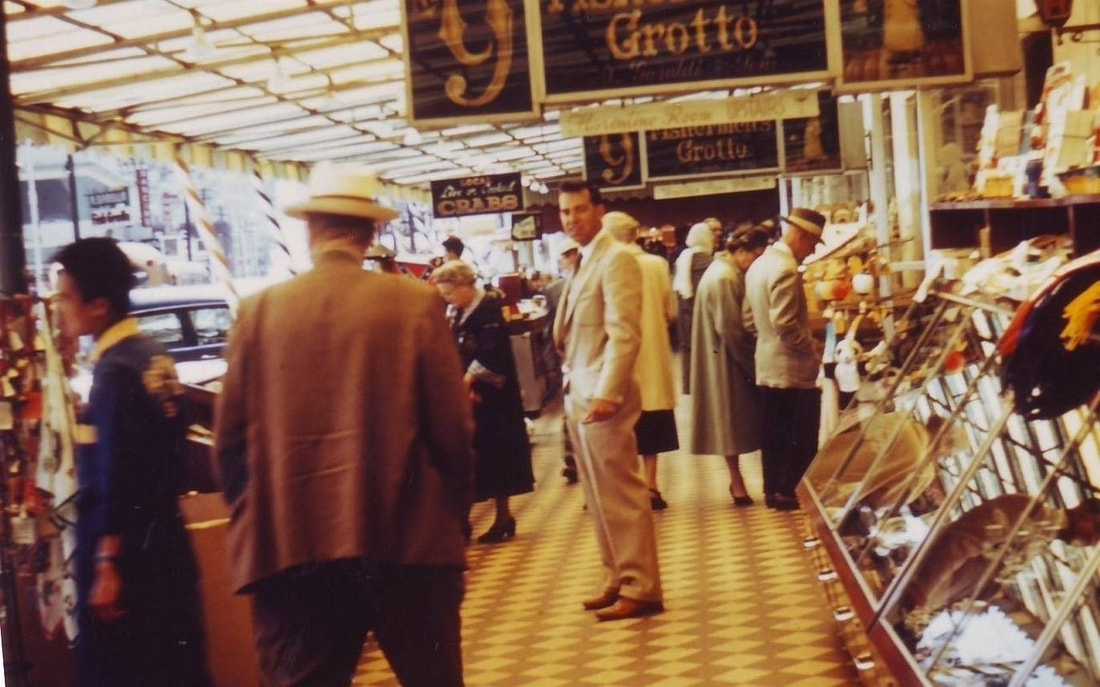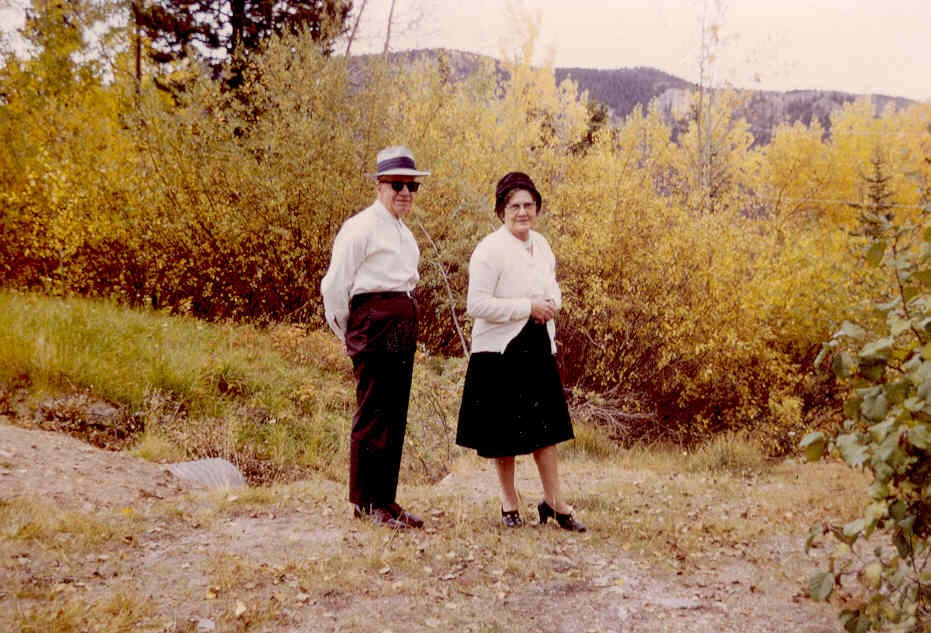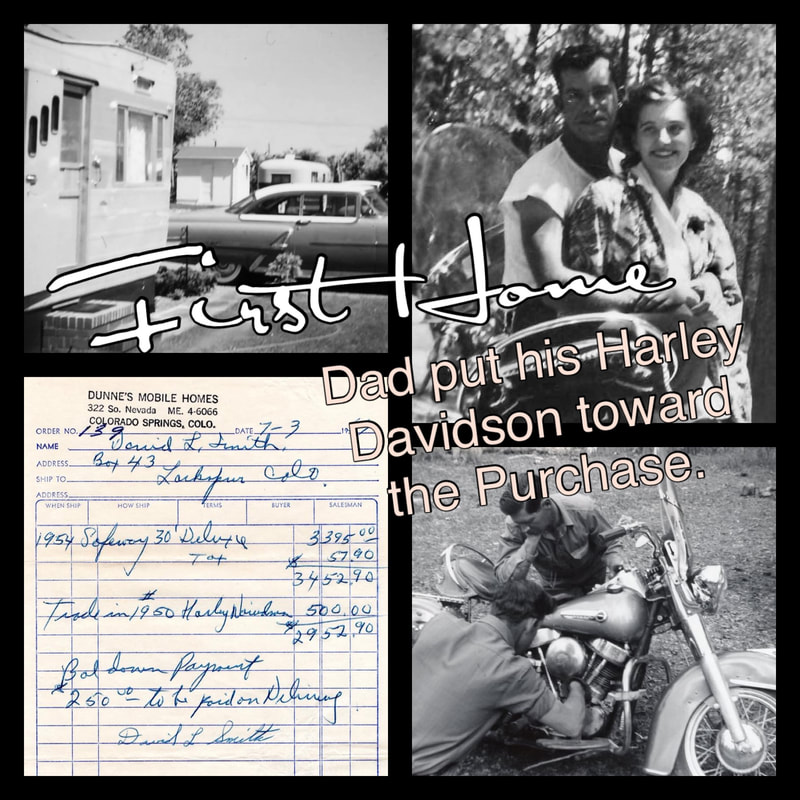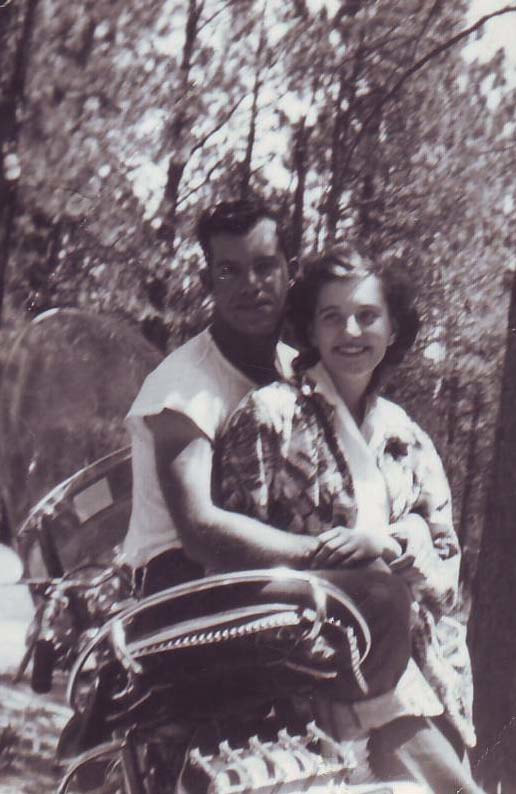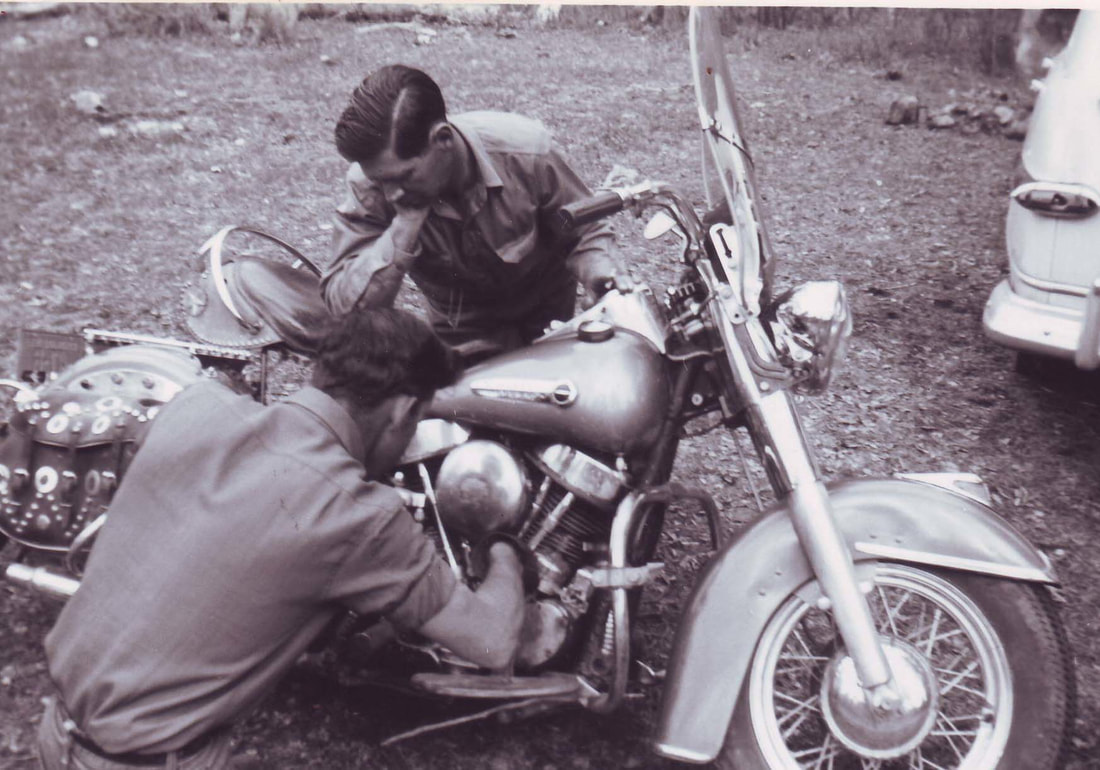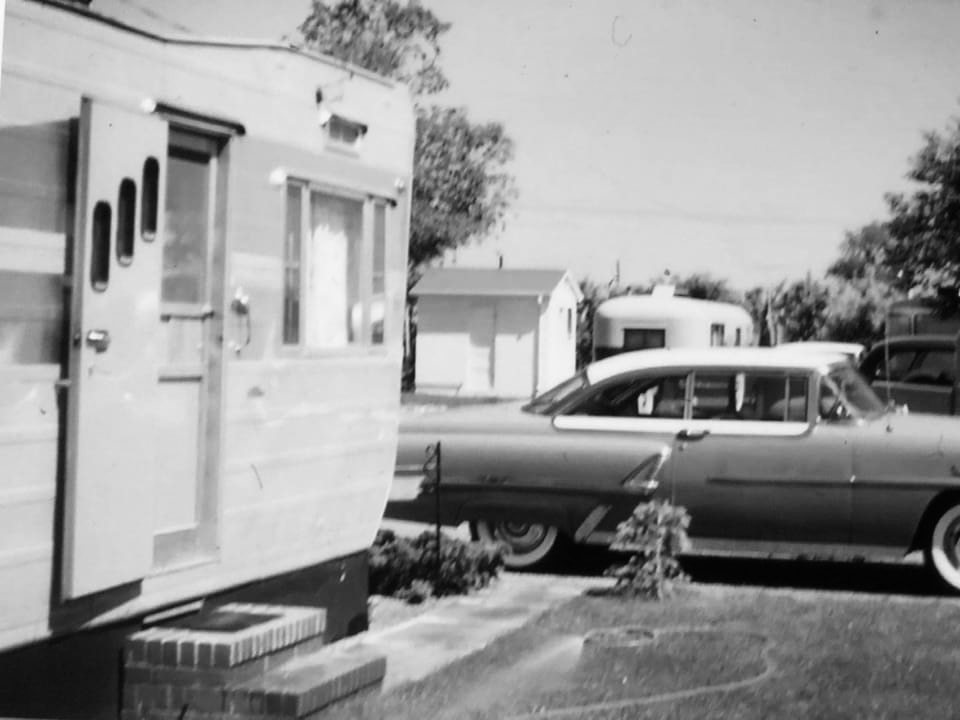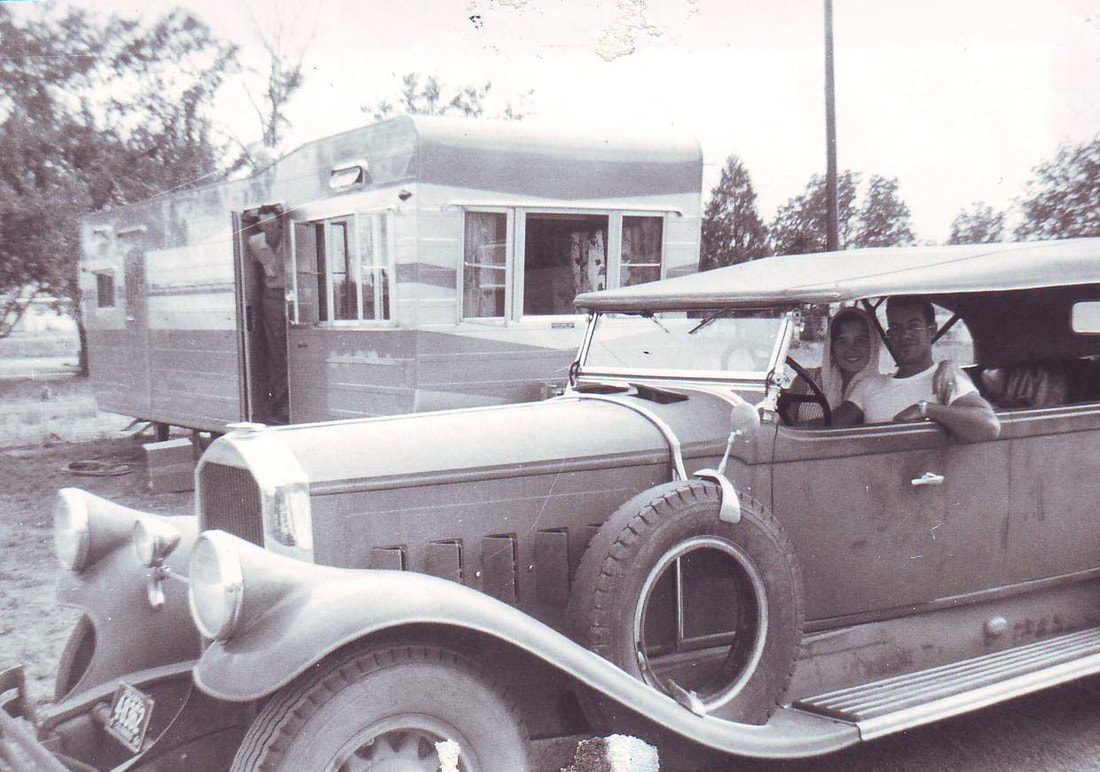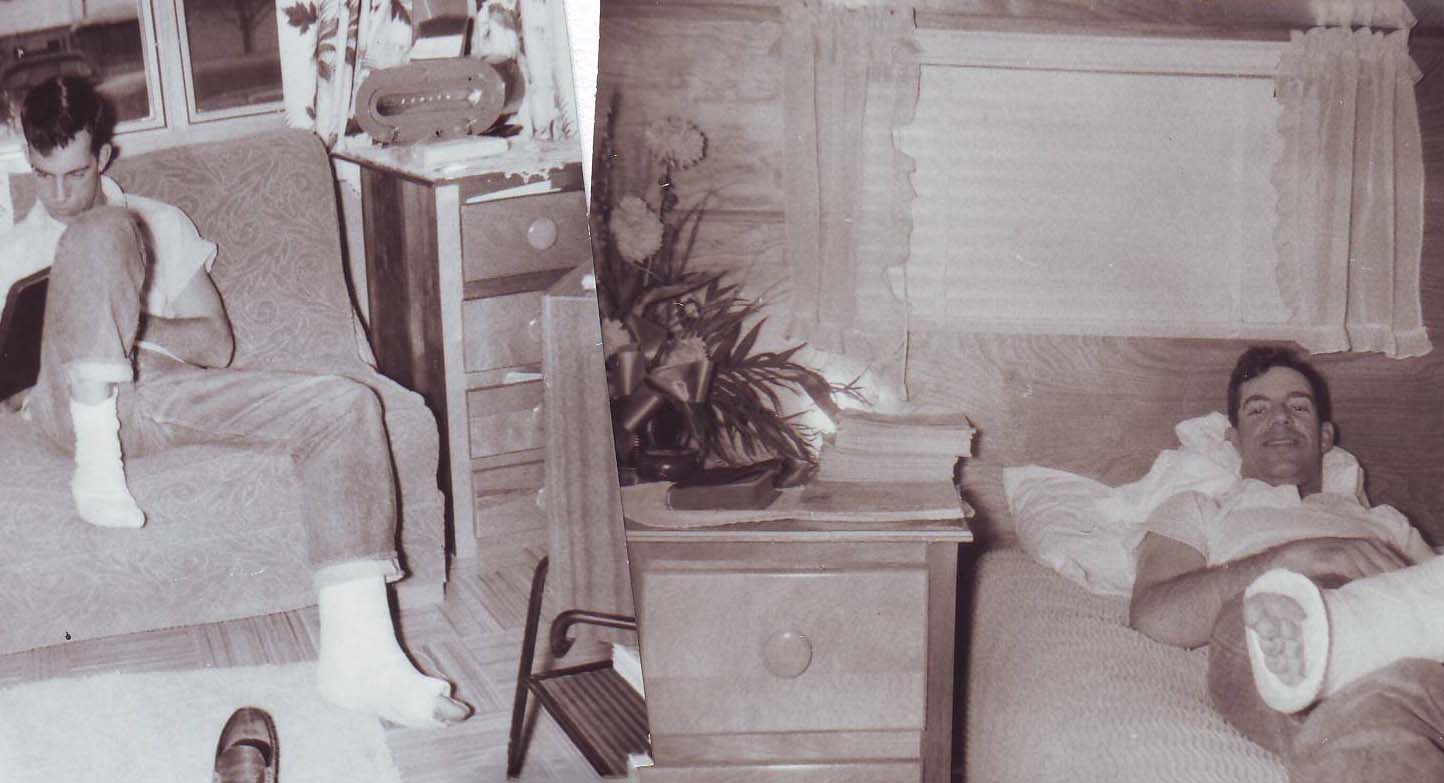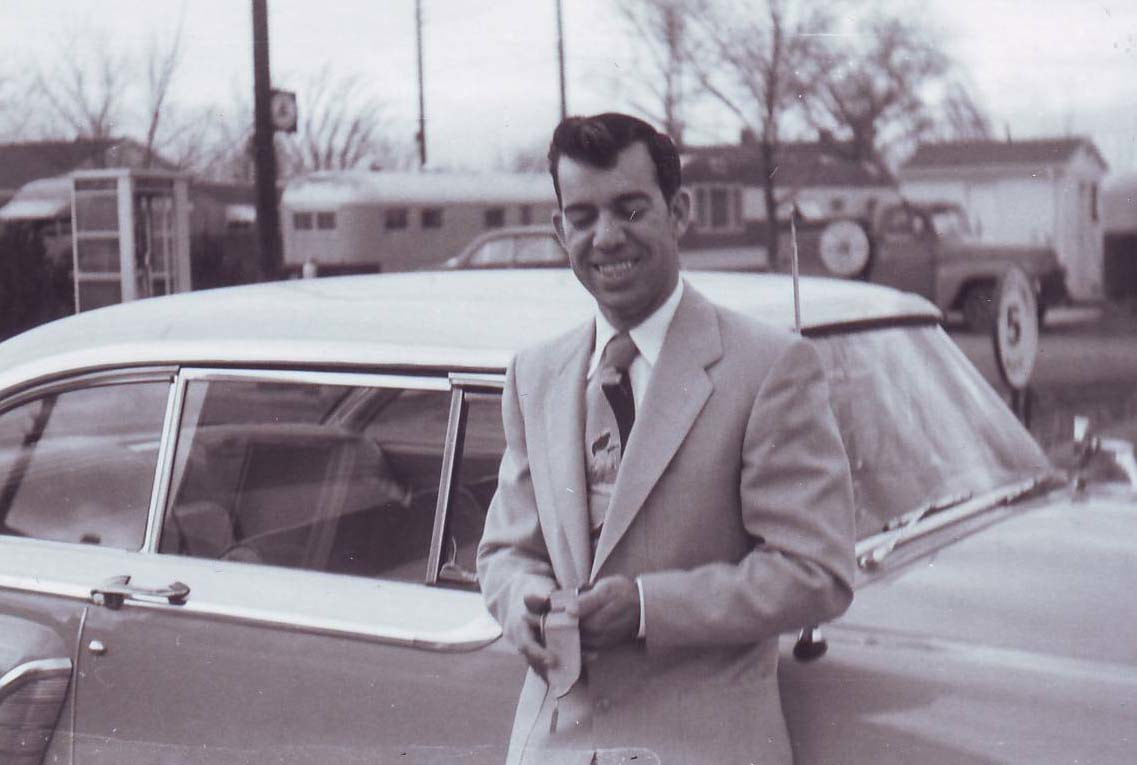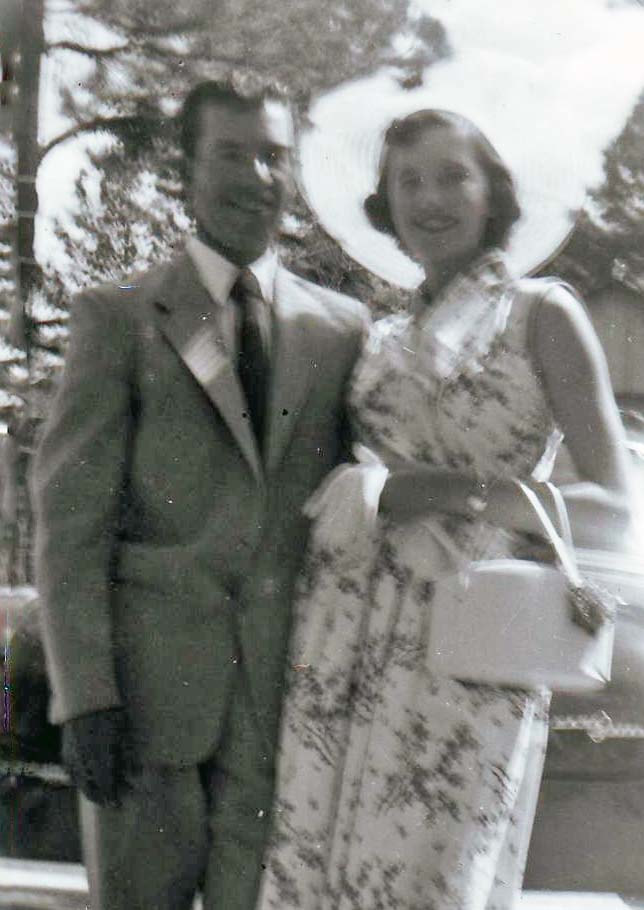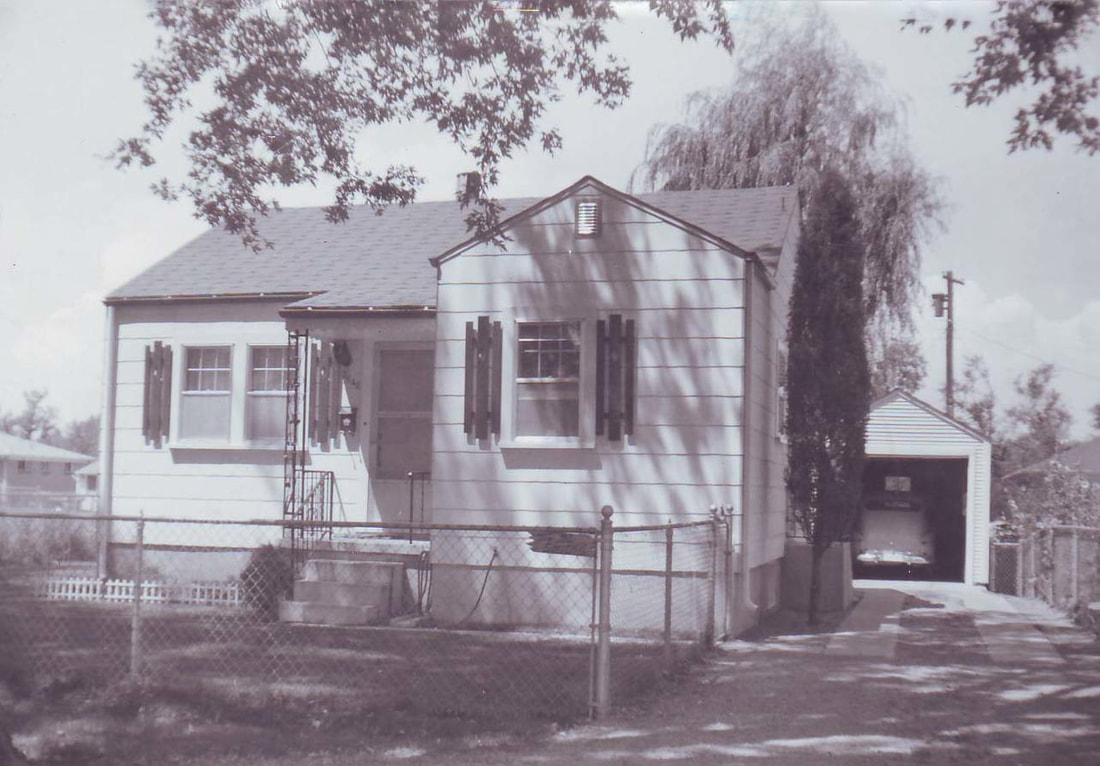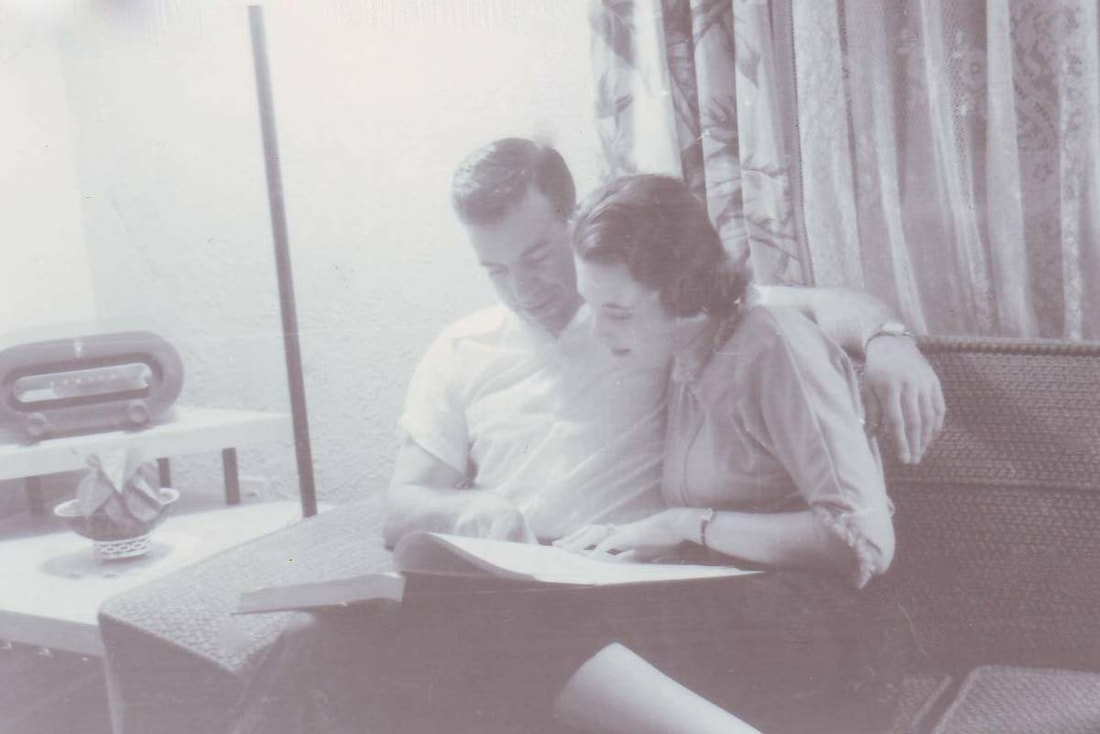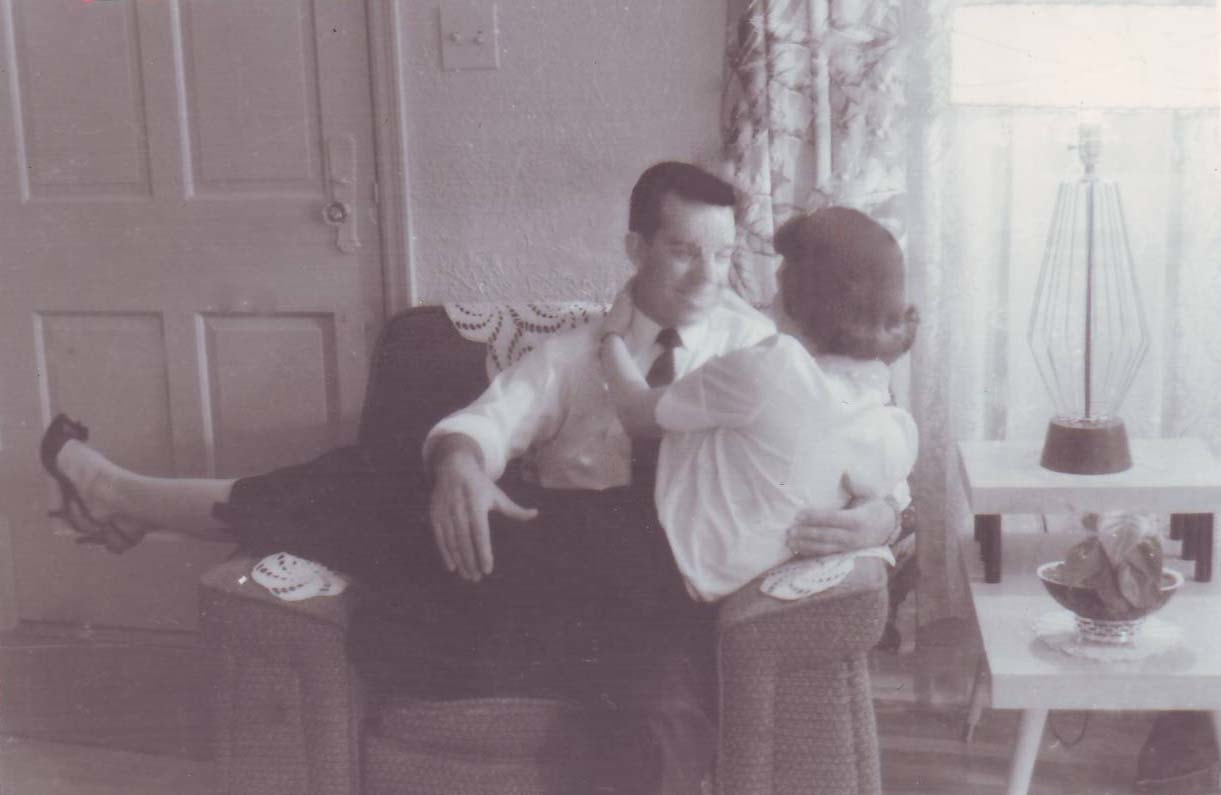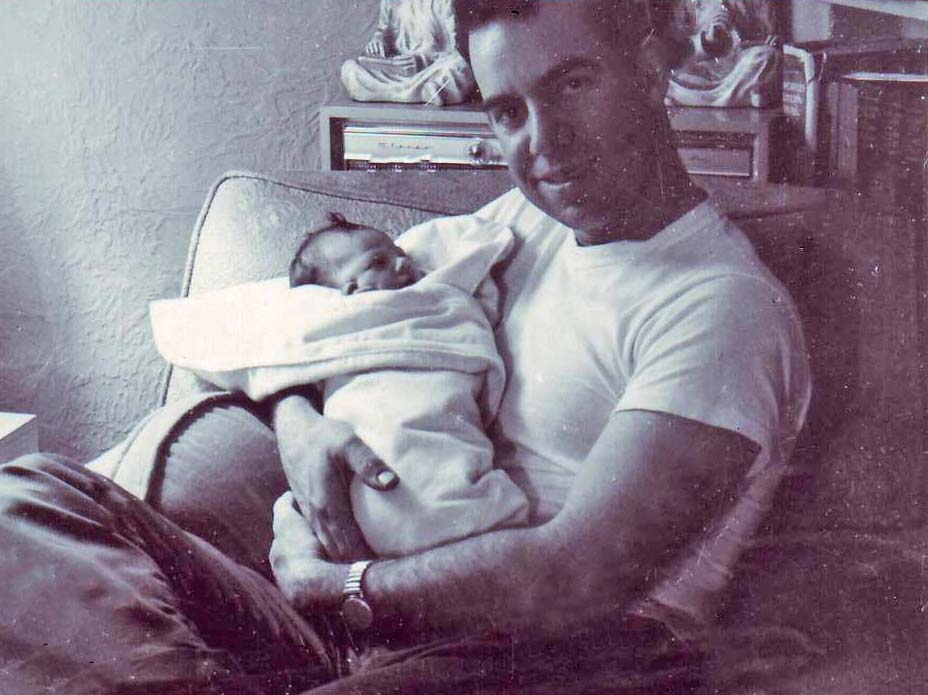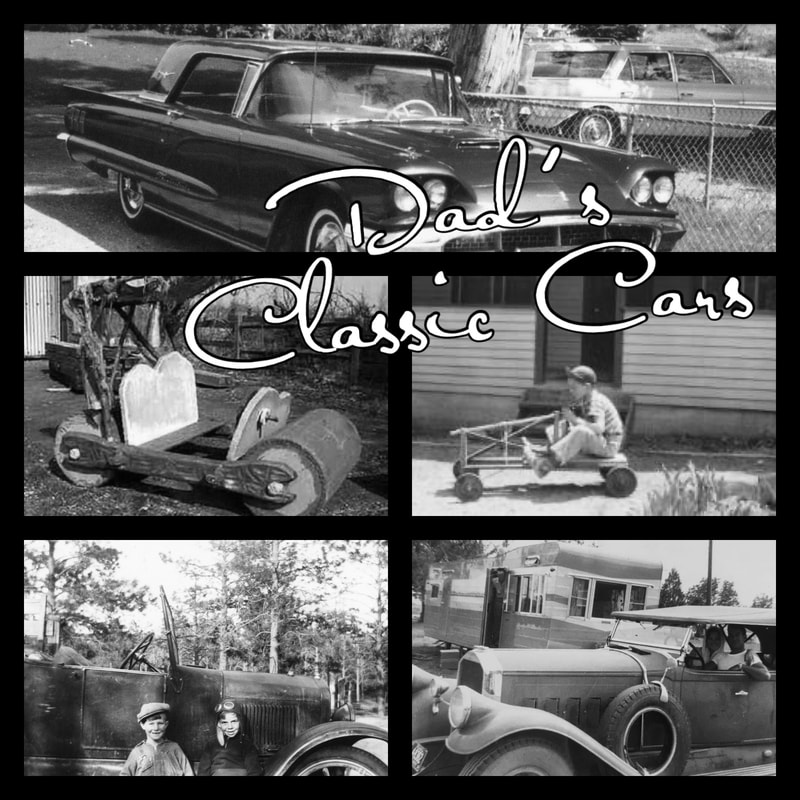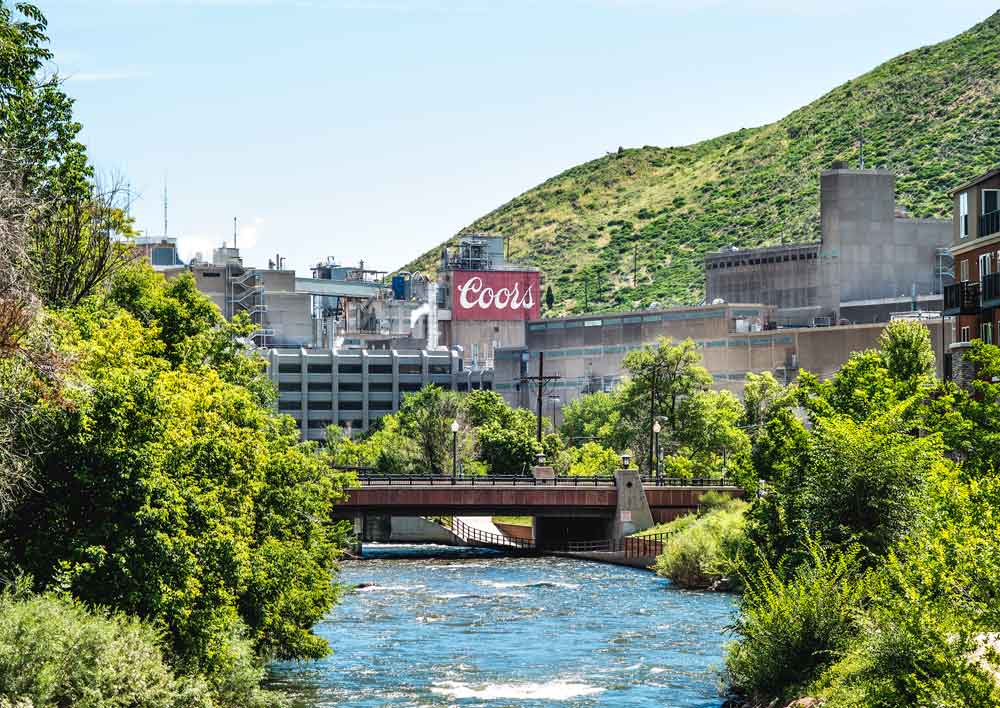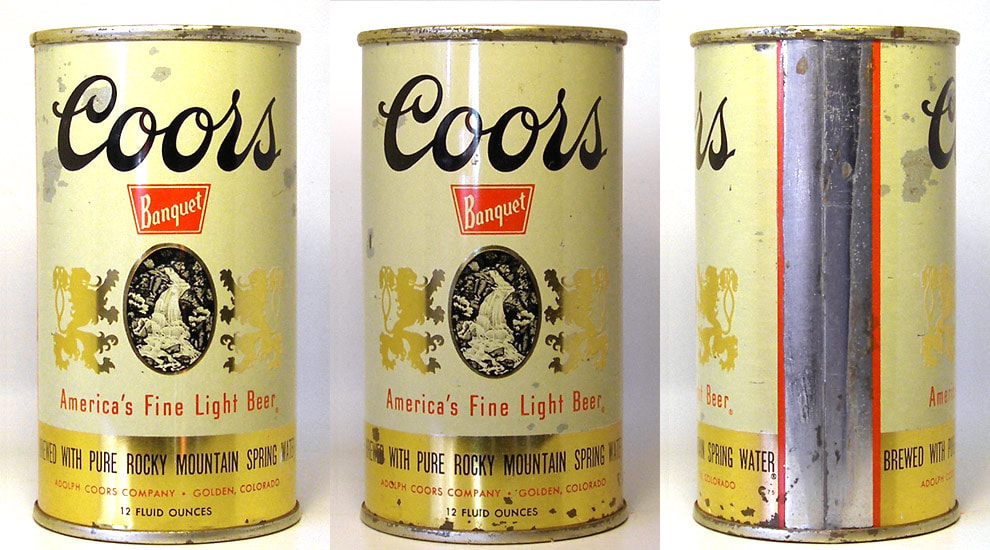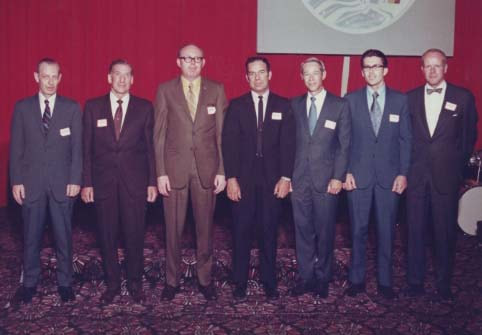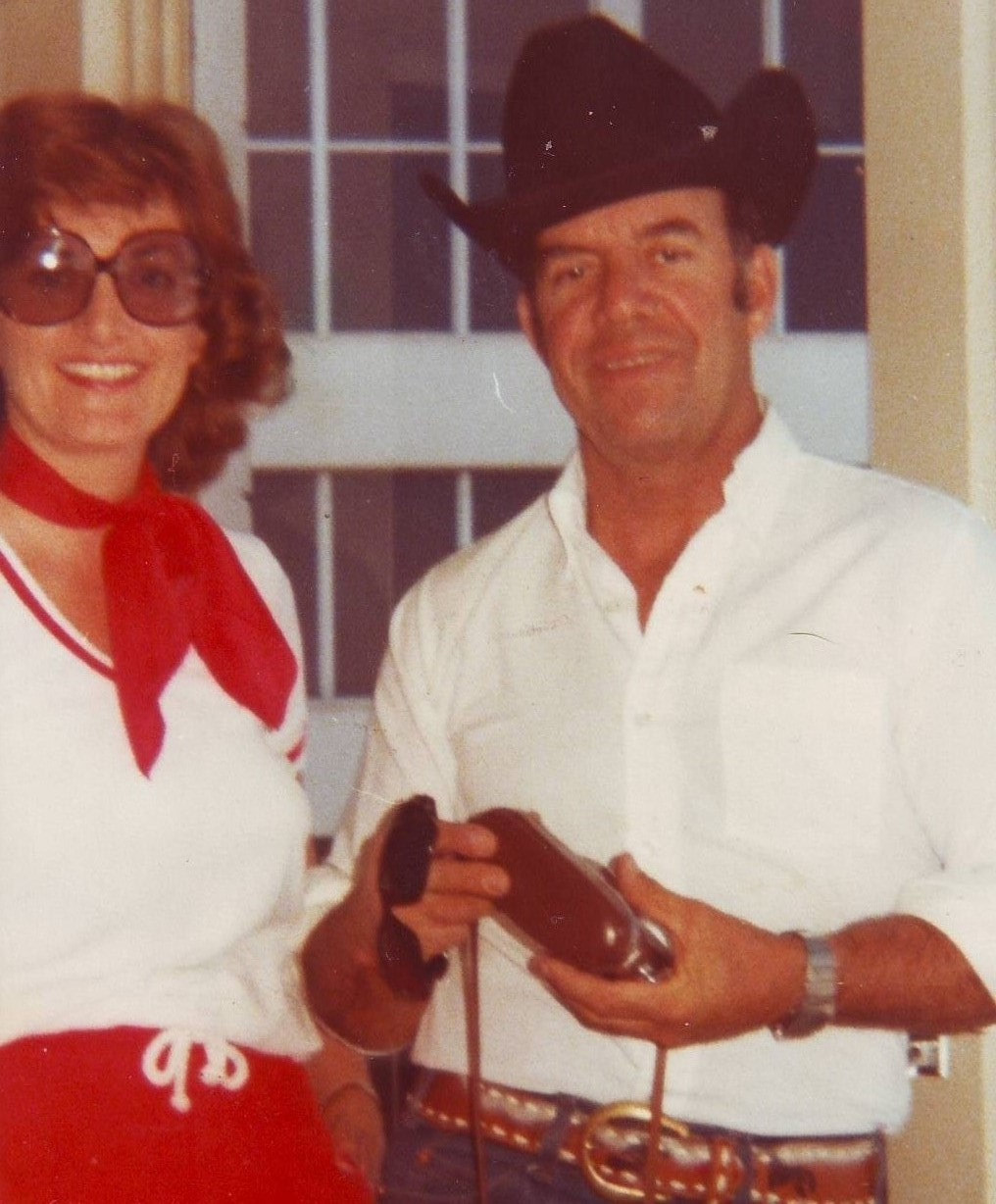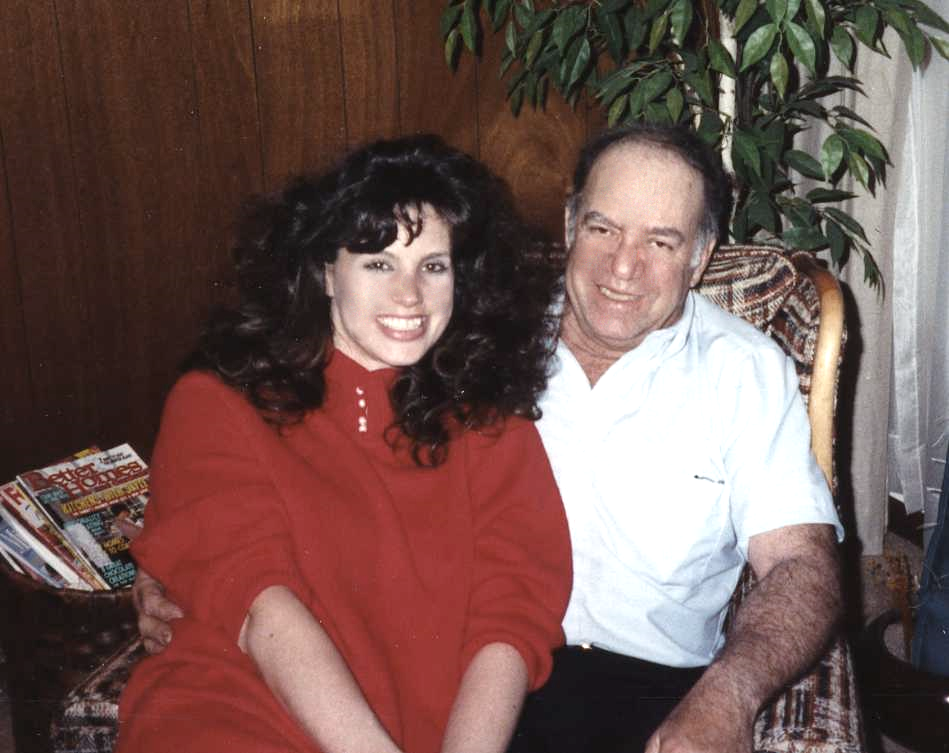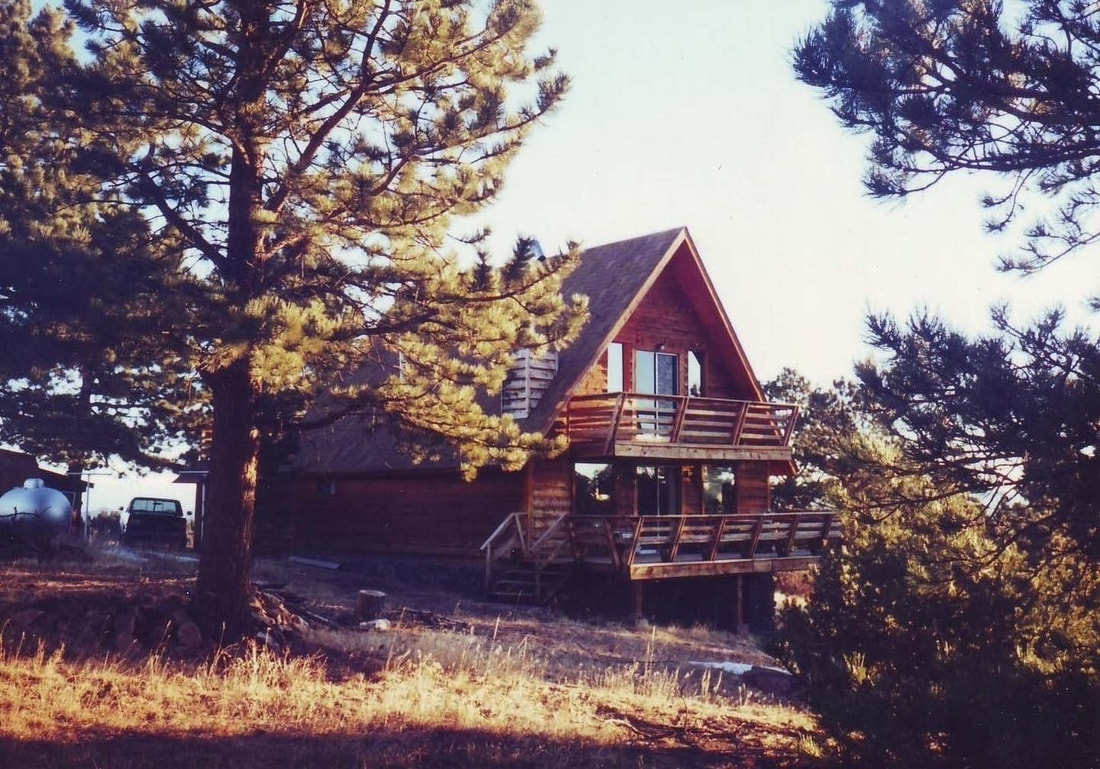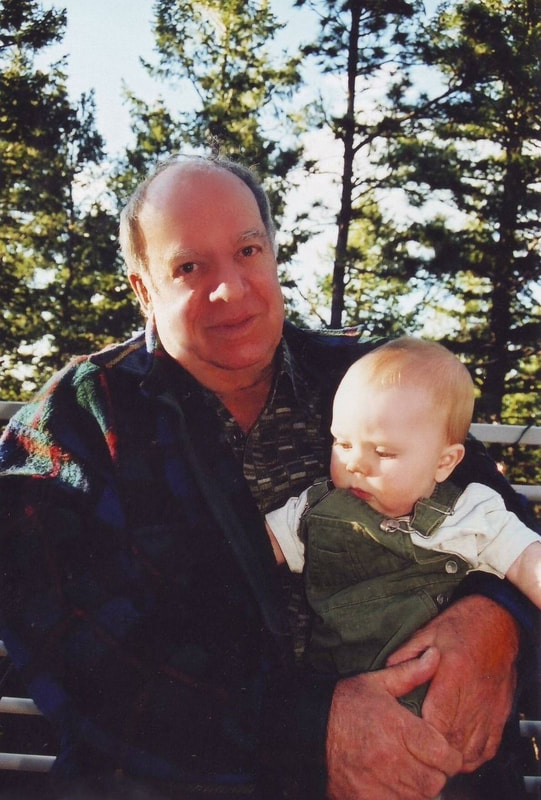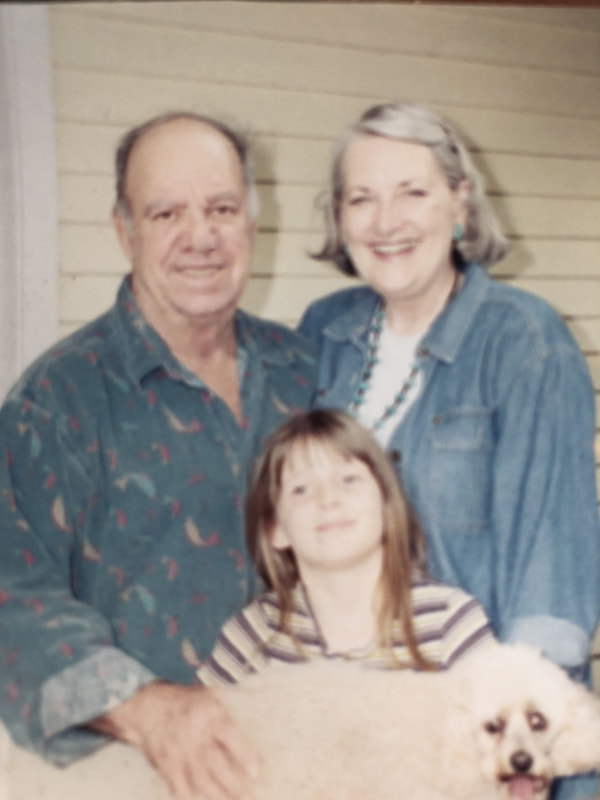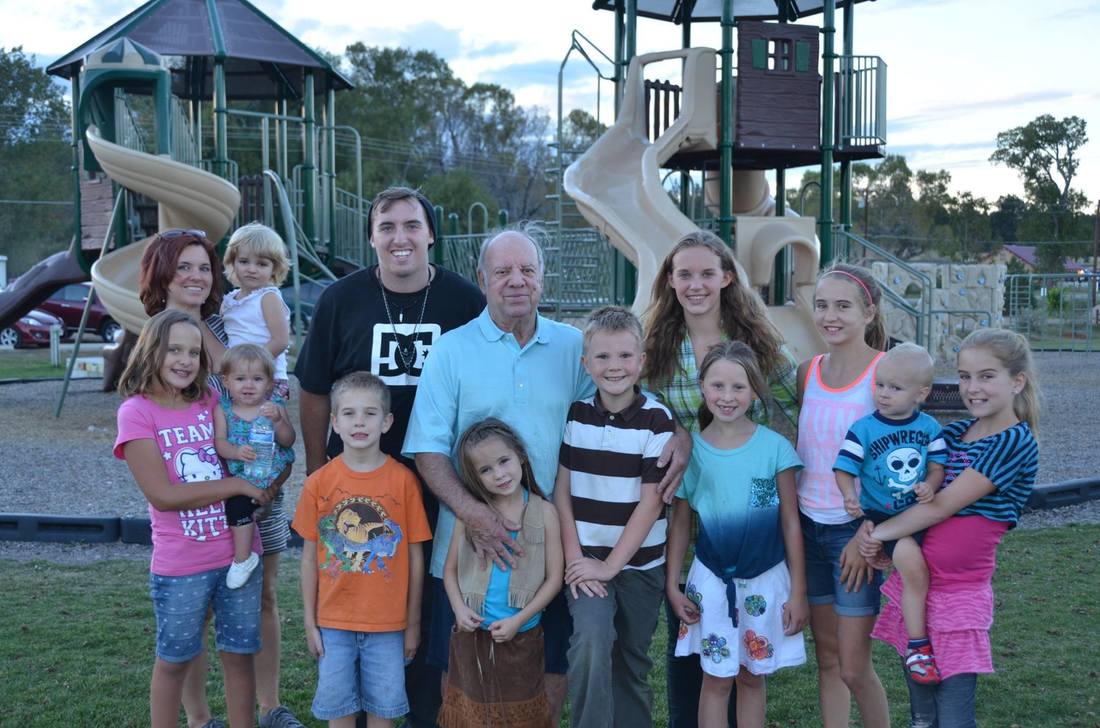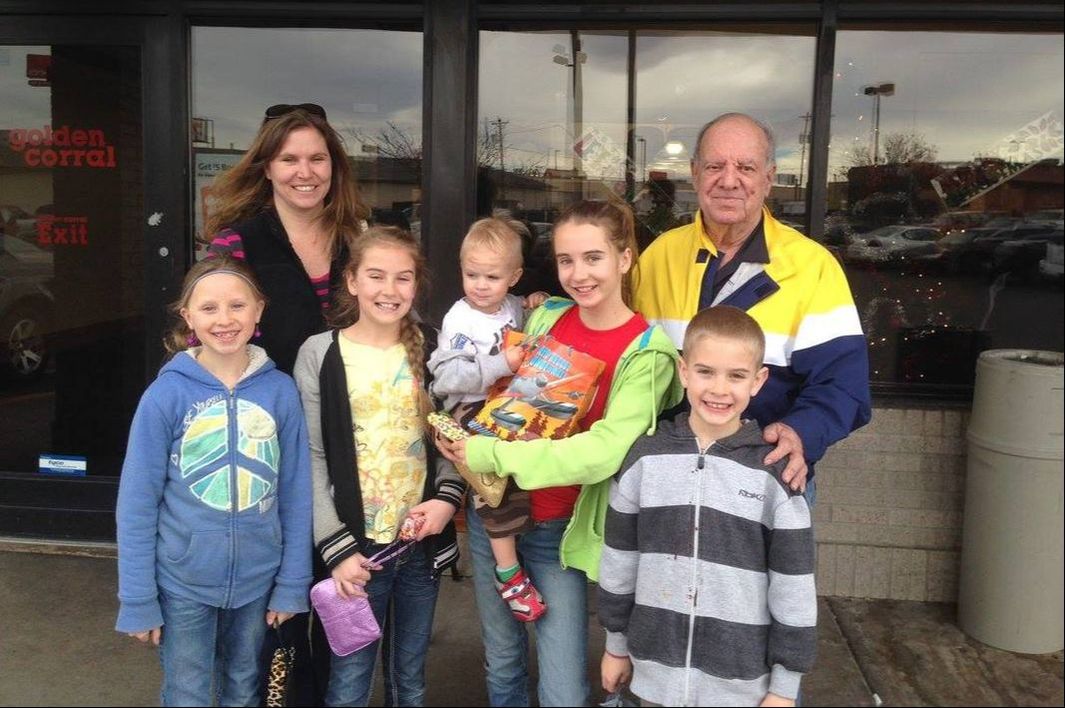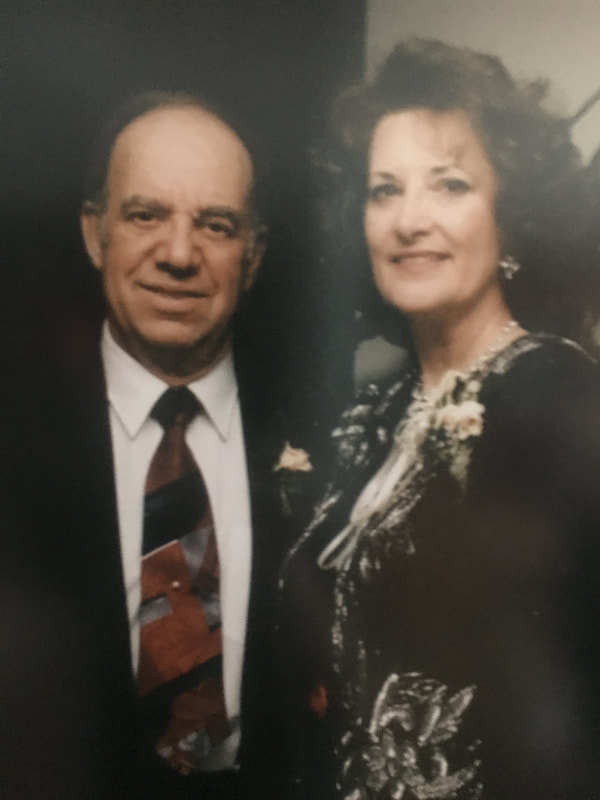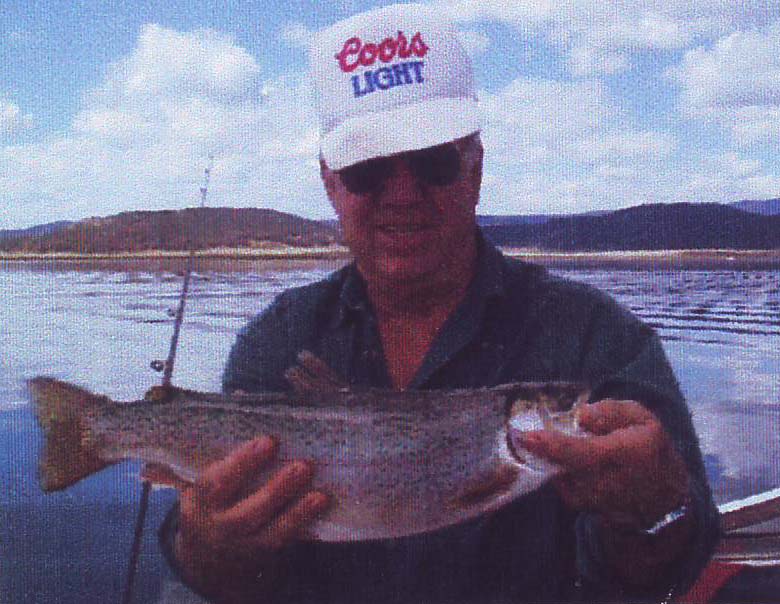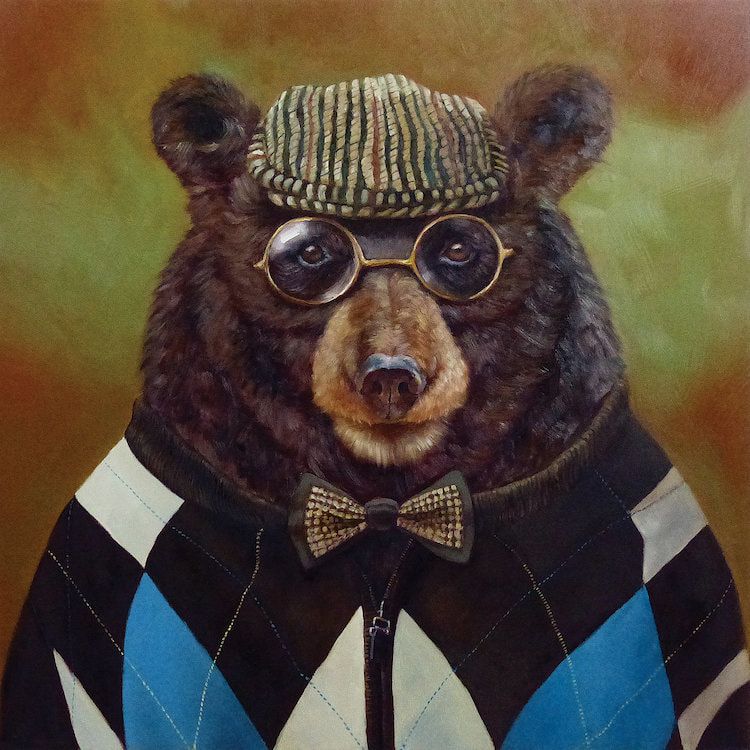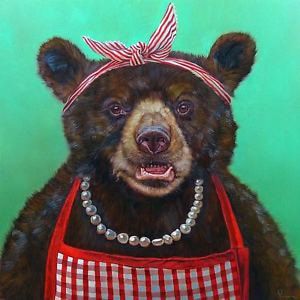DAVID LEE SMITH
Biography of an Incredibly Amazing Man
- As Told By Lucinda L. Turley
My father was born in the United States (the state of Colorado), in 1930. It was the beginning of the Great Depression. His mother was a stay-home mom, his father was a postal carrier for the United States Government, during those depression years (when jobs were very scares). His family migrated to America (from Germany), in the early nineteen hundreds.
My father’s family pioneered the Lake Gulch area in and around Castle Rock, Colorado. Dad’s family history includes covered wagons, log cabins, stew on the fireplace, Indian raids, and gunfire standoffs.
My father came from a family of five kids. He was the youngest of the five (and considered to be the baby of the family). I would often listen to my father tell stories about how he grew up. Never owning a pair of shoes, playing in the foothills in and around his house, and watching his parents struggle to make ends meet. He often told us kids stories, of how he’d take off in the mornings, to roam the hills (in and around their home), playing with his friends for hours. As I was leaving in the morning, I could hear my mother yell, “Be home by dark”. “Life was so different back then”, he said. “Today, you wouldn’t dream of letting your kids take off in the morning, to run all over the neighborhood (unattended), with the only stipulation being, to be home by dark.”
I used to sit around listening to my dad tell stories about what it was like to be a child during the Great Depression. He told stories of how his father would take the wheels off to the car each night, because people would try and steal the tires. Grandma only wore nylons to special occasions, as nylons were considered a luxury back then. Any money saves, went into a coffee tin, hidden in the kitchen behind a sack of flour or sugar. Their home didn’t have electricity, city water or sewer. The family had a well to draw water from, often critters would get in there and die (dad said), and my father would have to go clean it out. It’s a miracle us kids survived.
One of his mother’s favorite things to make was biscuits and sausage gravy. His mother gravitated towards meals which were simple to make and could be easily expanded into feeding a large family (biscuits & gravy was one of those meals). Dad says he remembers his mom taking a piece of meat and pounding it into several thin strips. By doing this, she was able to take one piece of meat and feed her family. She made her coffee weak, so the grounds lasted longer. "I never had hot chocolate, marshmallows and things like that, which you kids enjoy today", dad said.
When we got to sit in the bathtub, my mom only let us have enough water to cover our ankles. Water was considered a luxury. My mother would wash all our clothes by hand. She was either in the kitchen cooking or doing laundry every single day, just to keep up with a five kids, and a working husband. Years later when the house was connected to electricity and we got our first water pump for the well, my parents still only let us have enough water to cover our ankles. Pumps take electricity, and electricity costs money. That was the mentality that the Great Depression left on us. It changed the way we looked at things. Everything was considered a luxury, a privilege to own, to use, to have or to possess, and you rationed everything (right down to the gumballs in your pocket). We no sooner got out of the Great Depression and the world went into World War.
My father recalled the story, when he remembers his father throwing the gear on the horse & wagon, and how the whole family would ride to Denver. There were no paved highways, no grated dirt roads, just rugged rough terrain. It took us all day to reach Denver by wagon. A trip by car today, which takes a little over one hour.
My father’s family pioneered the Lake Gulch area in and around Castle Rock, Colorado. Dad’s family history includes covered wagons, log cabins, stew on the fireplace, Indian raids, and gunfire standoffs.
My father came from a family of five kids. He was the youngest of the five (and considered to be the baby of the family). I would often listen to my father tell stories about how he grew up. Never owning a pair of shoes, playing in the foothills in and around his house, and watching his parents struggle to make ends meet. He often told us kids stories, of how he’d take off in the mornings, to roam the hills (in and around their home), playing with his friends for hours. As I was leaving in the morning, I could hear my mother yell, “Be home by dark”. “Life was so different back then”, he said. “Today, you wouldn’t dream of letting your kids take off in the morning, to run all over the neighborhood (unattended), with the only stipulation being, to be home by dark.”
I used to sit around listening to my dad tell stories about what it was like to be a child during the Great Depression. He told stories of how his father would take the wheels off to the car each night, because people would try and steal the tires. Grandma only wore nylons to special occasions, as nylons were considered a luxury back then. Any money saves, went into a coffee tin, hidden in the kitchen behind a sack of flour or sugar. Their home didn’t have electricity, city water or sewer. The family had a well to draw water from, often critters would get in there and die (dad said), and my father would have to go clean it out. It’s a miracle us kids survived.
One of his mother’s favorite things to make was biscuits and sausage gravy. His mother gravitated towards meals which were simple to make and could be easily expanded into feeding a large family (biscuits & gravy was one of those meals). Dad says he remembers his mom taking a piece of meat and pounding it into several thin strips. By doing this, she was able to take one piece of meat and feed her family. She made her coffee weak, so the grounds lasted longer. "I never had hot chocolate, marshmallows and things like that, which you kids enjoy today", dad said.
When we got to sit in the bathtub, my mom only let us have enough water to cover our ankles. Water was considered a luxury. My mother would wash all our clothes by hand. She was either in the kitchen cooking or doing laundry every single day, just to keep up with a five kids, and a working husband. Years later when the house was connected to electricity and we got our first water pump for the well, my parents still only let us have enough water to cover our ankles. Pumps take electricity, and electricity costs money. That was the mentality that the Great Depression left on us. It changed the way we looked at things. Everything was considered a luxury, a privilege to own, to use, to have or to possess, and you rationed everything (right down to the gumballs in your pocket). We no sooner got out of the Great Depression and the world went into World War.
My father recalled the story, when he remembers his father throwing the gear on the horse & wagon, and how the whole family would ride to Denver. There were no paved highways, no grated dirt roads, just rugged rough terrain. It took us all day to reach Denver by wagon. A trip by car today, which takes a little over one hour.
Larkspur House, Colorado
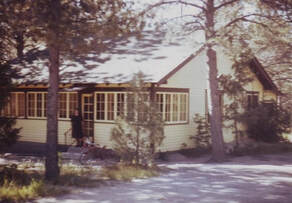
My father’s parents bought their first home during the Great Depression. This was no easy task, for any father (at that time). Dad recalls, my parents paid $600.00 USD for a 2 bedroom, one bath house (with no plumbing & no electricity), and made a $10.00 payment each month to the owner, until it was paid for. (You see this house in the picture to the left). Back then (dad said), that was a lot of money and my dad struggled every month to make that $10.00 payment. Today my sister lives in this house and has completely renovated it, adding a second story. After my mother died, my father moved in with my sister and he now lives in the very house he grew up in as a child.
I recall my dad describing the house he grew up in as a child. It was a two bedroom house, with a long open porch. It didn't have the windows in it (that you see in the picture), those were added years later. My parent’s took one bedroom, and they gave my sisters (Helen, Riva, & Vernell) the second bedroom. Edward (my oldest brother) and I, slept on the long open porch. Mom would tuck us in each night, and cover us up with blankets. I remember as I laid there going to sleep, watching the bats fly in and out of the porch as we slept. During the winters, Edward and I would sleep on the livingroom floor in the house, by the fire place.
I recall my dad describing the house he grew up in as a child. It was a two bedroom house, with a long open porch. It didn't have the windows in it (that you see in the picture), those were added years later. My parent’s took one bedroom, and they gave my sisters (Helen, Riva, & Vernell) the second bedroom. Edward (my oldest brother) and I, slept on the long open porch. Mom would tuck us in each night, and cover us up with blankets. I remember as I laid there going to sleep, watching the bats fly in and out of the porch as we slept. During the winters, Edward and I would sleep on the livingroom floor in the house, by the fire place.
Growing Up as a Boy
My dad's father (next to dad's mother in the picture to the left), delivered the mail in his area for the postal department. He would wait for the trains (to pass by our house). They would throw out the mail sack to the ground (as they whistled by), and my dad would be there to retrieve it, sort it, and deliver it to the people in the area. My mother made pies and sold them to the local grocery stores. One of her favorite pies to bake was a choke cherry pie. Choke Cherry bushes surrounded our home (and the berries were easy to obtain), though bitter to the taste, my mom added a lot of sugar to compensate for that.
Dad as a Young Adult
Then in and around 1948, when my father was about 18 years of age, he started working for a local company that was coming through town, building the highway connecting Colorado Springs with Denver. My father was able to obtain a position and soon began running their large equipment for leveling dirt and removing debris. Then in about 1953, the company had moved towards the western part of the state, and began building a highway going through Fairplay, Colorado. After dad would finish work each day, he’d go into the local hotel for a bite to eat, before driving home (which was about 1-1/2 hours away on his motorcycle). A young woman by the name of Marlene would wait on him, she was his waitress. A woman I would later come to know and call, mom.
Then in and around 1948, when my father was about 18 years of age, he started working for a local company that was coming through town, building the highway connecting Colorado Springs with Denver. My father was able to obtain a position and soon began running their large equipment for leveling dirt and removing debris. Then in about 1953, the company had moved towards the western part of the state, and began building a highway going through Fairplay, Colorado. After dad would finish work each day, he’d go into the local hotel for a bite to eat, before driving home (which was about 1-1/2 hours away on his motorcycle). A young woman by the name of Marlene would wait on him, she was his waitress. A woman I would later come to know and call, mom.
Then in and around 1948, when my father was about 18 years of age, he started working for a local company that was coming through town, building the highway connecting Colorado Springs with Denver. My father was able to obtain a position and soon began running their large equipment for leveling dirt and removing debris. Then in about 1953, the company had moved towards the western part of the state, and began building a highway going through Fairplay, Colorado. After dad would finish work each day, he’d go into the local hotel for a bite to eat, before driving home (which was about 1-1/2 hours away on his motorcycle). A young woman by the name of Marlene would wait on him, she was his waitress. A woman I would later come to know and call, mom.
Dad thought she was the cutest thing he’d seen since sliced bread. Before you knew it, he was spending extended weekends in Fairplay with my mom, fishing, taking drives, and participating in my mother’s high school activities (such as the Fairplay Burrow Races, and school dances). My mother was in her final year of high school, about ready to graduate. After graduation, and a one year courtship, my father decided to pop the question, “Will You Marry Me?”
Dad took her home to meet his folks, Mom took dad home to meet her father, and her mother (both who were divorced at the time). There was little money on either side of the family, as everyone was still living hand-to-mouth from the Great Depression and World War. So my parents, packed their bags and drove to Jackson Hole, Wyoming, where they got married on June 7, 1954, by the Justice of Peace.
Shortly after getting married, they purchased a small trailer, which they lived in for several years. A modest trailer, so dad could afford “his dream car”. You might say my parents were car-poor for most of their newlywed years. Dad continued to work for the road construction company, and mom got a job working for the local electric company, in Littleton Colorado. Life was good as newlyweds, and this went on for about six years, until one dad when my dad was bucked from a horse. He received a compound fracture to one of his legs, which required several surgeries to repair. He was left disabled for awhile, on crutches and unable to work. With not much else to do, I came along on February 4, 1960 (7 lbs. 5 oz. 22 inches long, and lots of dark hair).
Shortly after my arrival, both my parents made some changes in their lives. Dad quit the construction company that required him to travel extensively (so he could be home more with his new little family), and my mother quit her job at the electric company (to be a stay-home mom). They sold their trailer, sold dad's fancy car and bought their first home (a small (2) bedroom (1) bath house) in Littleton, Colorado. To this day I drive by that spot on Delaware Street (near the old Cinderella shopping mall off Hampton Avenue), where an apartment building now sits on the site where their first home use to be.
In time, dad was able to acquire a new job, working for the Coors Brewing Company, in Golden, Colorado. They were ready to expand their facility, and dad was going to be their crane operator for all the new buildings. Everything was going along just fine, and then my mother got pregnant again. On November 15, 1961, my sister graced our lives. My parents soon realized, their little family was expanding, and they needed more space. So my dad began digging out the basement to their home. They put us girls in the upstairs two bedrooms, and they took the basement bedroom and (TV room) area downstairs.
As a small child, I remember going to my grandmother’s house (dad’s mother), for dinner. She called it “Sunday Dinner”. Sunday dinner was when all her kids were expected to show up at her house, and eat one meal together each week. I think it was my grandmother’s way, of trying to keep her family together. It was during these dinners and meal preparations, that my grandmother started talking to my mother about the bible. In time, my mother accepted a bible study, and it didn’t take long for my father to realize he was going to be left out. So he joined my mother’s study, and both my parents progressed to baptism (on June 20, 1961), about a year after studying.
My parents continued living in the Delaware Street house until I was about 5 years old, when they decided to put themselves in a better school district, and find themselves a larger home. So they sold the Delaware house and bought the (4) bedroom house I grew up in on Layton Avenue, in Littleton Colorado.
This was the house I grew up in, the house I have all my childhood memories, the house I had girls sleep overs, where I received my first kiss, graduated from high-school, tasted my first beer, went on my first date, got married, and brought babies back home to visit. It is the same house my parents paid off a (30) year mortgage at $99.00 USD a month.
In 1975, my father fell from a four (4) story building at work. He got up early in the morning (to go to work), as he always did about 4:00 a.m. As part of his normal routine (each day), he would go into this one area, to get his hard hat, gear and suit up for the day. What he didn’t realize, was the day before, a crew had taken out the floor behind the door (but failed to barricade the door). My father opened the door at 4:00 a.m. and stepped inside and fell 40 feet to a sand pile below. The doctors said the only reason he survived, was the sand pile cushioned his fall. He broke several ribs, and compressed his spine together when hitting the ground on his rear-end. He was in the hospital for months, and they had pins in his skull and his ankles just trying to pull his spine apart. The employer acknowledge fault (on their end), and paid for all my father’s medical bills. To this day my father suffers from nerve damage to his knees as a result of this fall. My father didn’t believe in holding grudges (or suing, back then). It was an innocent mistake, as he called it. After he recovered, he went back to work for the same company, doing the same job, until the day he retired (20 years later).
My father received many awards throughout his years of employment, for being an excellent employee, team captain, and meeting many brewery construction deadlines. Today Coors Beer is one of the most popular beers in America.
In the early 1980’s my parents purchased a (2) acre parcel of land at the base of Mount Gibb (just shy of 14,000 feet), in Westcliffe, Colorado. For the next ten (10) years, they tinkered around building what they called “a cabin”, (a 3-bedroom, 2-bath structure, with a garage), which everyone found this humorous, stating (that’s not a cabin it’s a house!). Coors Brewery was nearing completion of their plant facilities, and was now giving away any leftover construction materials to their employees. My father took advantage of this, and from these building scraps, they built “our family cabin.”
Every time they could get alittle extra time away (they would sneak to the mountain), and finish one more project on the structure. By the early 1990’s (about 10 years later), it was finally finished. I remember a lot of weekends up there, making homemade ice-cream, sitting around a camp fire, taking walks in the woods, looking at streams, flowers, trees and bear poop. My sister and I even built a stick “T-Pee”, which became our club-house and eventually became our children’s club-house.
In 1995, my father retired from his position at the Coors Brewery. They had a big ceremony for him, I remember attending as a young adult. It was a bitter sweet day for my father. He was happy and sad, all at the same time. He was tired and ready to retire, yet loved the work he did. It was hard saying goodbye, after 35 wonderful years of employment, and people he had drawn close to over the years, building this facility together. He always felt Coors Beer took care of him and his family, so he tried his best to take care of building the Brewery.
All my memories about my father are positive. He has been a great provider for our family. He sacrificed many things to give us girls, what he never had. He helped me buy my first car, took me in when I was in-between jobs, helped me with money when I became a single mom, and he help us buy our present home here in Belize.
My parents studied the bible and helped to bring many people into the truth over the years (Marilyn & Swede Neilson, Chris & Mary Peterson, Ray & Nadine Pelton, and a deaf woman by the name of Wanda Shultz), to name a few.
In 2004 we celebrated my parents 50th wedding anniversary by taking a Mediterranean cruse and touring (8) different countries. That was my father's first time, outside of the continental United States. Then in 2006, we moved to Belize, and my parents joined us for two months of our journey. My dad fell in love with it down here. Loved the food, the people, and the culture.
Dad thought she was the cutest thing he’d seen since sliced bread. Before you knew it, he was spending extended weekends in Fairplay with my mom, fishing, taking drives, and participating in my mother’s high school activities (such as the Fairplay Burrow Races, and school dances). My mother was in her final year of high school, about ready to graduate. After graduation, and a one year courtship, my father decided to pop the question, “Will You Marry Me?”
Dad took her home to meet his folks, Mom took dad home to meet her father, and her mother (both who were divorced at the time). There was little money on either side of the family, as everyone was still living hand-to-mouth from the Great Depression and World War. So my parents, packed their bags and drove to Jackson Hole, Wyoming, where they got married on June 7, 1954, by the Justice of Peace.
Shortly after getting married, they purchased a small trailer, which they lived in for several years. A modest trailer, so dad could afford “his dream car”. You might say my parents were car-poor for most of their newlywed years. Dad continued to work for the road construction company, and mom got a job working for the local electric company, in Littleton Colorado. Life was good as newlyweds, and this went on for about six years, until one dad when my dad was bucked from a horse. He received a compound fracture to one of his legs, which required several surgeries to repair. He was left disabled for awhile, on crutches and unable to work. With not much else to do, I came along on February 4, 1960 (7 lbs. 5 oz. 22 inches long, and lots of dark hair).
Shortly after my arrival, both my parents made some changes in their lives. Dad quit the construction company that required him to travel extensively (so he could be home more with his new little family), and my mother quit her job at the electric company (to be a stay-home mom). They sold their trailer, sold dad's fancy car and bought their first home (a small (2) bedroom (1) bath house) in Littleton, Colorado. To this day I drive by that spot on Delaware Street (near the old Cinderella shopping mall off Hampton Avenue), where an apartment building now sits on the site where their first home use to be.
In time, dad was able to acquire a new job, working for the Coors Brewing Company, in Golden, Colorado. They were ready to expand their facility, and dad was going to be their crane operator for all the new buildings. Everything was going along just fine, and then my mother got pregnant again. On November 15, 1961, my sister graced our lives. My parents soon realized, their little family was expanding, and they needed more space. So my dad began digging out the basement to their home. They put us girls in the upstairs two bedrooms, and they took the basement bedroom and (TV room) area downstairs.
As a small child, I remember going to my grandmother’s house (dad’s mother), for dinner. She called it “Sunday Dinner”. Sunday dinner was when all her kids were expected to show up at her house, and eat one meal together each week. I think it was my grandmother’s way, of trying to keep her family together. It was during these dinners and meal preparations, that my grandmother started talking to my mother about the bible. In time, my mother accepted a bible study, and it didn’t take long for my father to realize he was going to be left out. So he joined my mother’s study, and both my parents progressed to baptism (on June 20, 1961), about a year after studying.
My parents continued living in the Delaware Street house until I was about 5 years old, when they decided to put themselves in a better school district, and find themselves a larger home. So they sold the Delaware house and bought the (4) bedroom house I grew up in on Layton Avenue, in Littleton Colorado.
This was the house I grew up in, the house I have all my childhood memories, the house I had girls sleep overs, where I received my first kiss, graduated from high-school, tasted my first beer, went on my first date, got married, and brought babies back home to visit. It is the same house my parents paid off a (30) year mortgage at $99.00 USD a month.
In 1975, my father fell from a four (4) story building at work. He got up early in the morning (to go to work), as he always did about 4:00 a.m. As part of his normal routine (each day), he would go into this one area, to get his hard hat, gear and suit up for the day. What he didn’t realize, was the day before, a crew had taken out the floor behind the door (but failed to barricade the door). My father opened the door at 4:00 a.m. and stepped inside and fell 40 feet to a sand pile below. The doctors said the only reason he survived, was the sand pile cushioned his fall. He broke several ribs, and compressed his spine together when hitting the ground on his rear-end. He was in the hospital for months, and they had pins in his skull and his ankles just trying to pull his spine apart. The employer acknowledge fault (on their end), and paid for all my father’s medical bills. To this day my father suffers from nerve damage to his knees as a result of this fall. My father didn’t believe in holding grudges (or suing, back then). It was an innocent mistake, as he called it. After he recovered, he went back to work for the same company, doing the same job, until the day he retired (20 years later).
My father received many awards throughout his years of employment, for being an excellent employee, team captain, and meeting many brewery construction deadlines. Today Coors Beer is one of the most popular beers in America.
In the early 1980’s my parents purchased a (2) acre parcel of land at the base of Mount Gibb (just shy of 14,000 feet), in Westcliffe, Colorado. For the next ten (10) years, they tinkered around building what they called “a cabin”, (a 3-bedroom, 2-bath structure, with a garage), which everyone found this humorous, stating (that’s not a cabin it’s a house!). Coors Brewery was nearing completion of their plant facilities, and was now giving away any leftover construction materials to their employees. My father took advantage of this, and from these building scraps, they built “our family cabin.”
Every time they could get alittle extra time away (they would sneak to the mountain), and finish one more project on the structure. By the early 1990’s (about 10 years later), it was finally finished. I remember a lot of weekends up there, making homemade ice-cream, sitting around a camp fire, taking walks in the woods, looking at streams, flowers, trees and bear poop. My sister and I even built a stick “T-Pee”, which became our club-house and eventually became our children’s club-house.
In 1995, my father retired from his position at the Coors Brewery. They had a big ceremony for him, I remember attending as a young adult. It was a bitter sweet day for my father. He was happy and sad, all at the same time. He was tired and ready to retire, yet loved the work he did. It was hard saying goodbye, after 35 wonderful years of employment, and people he had drawn close to over the years, building this facility together. He always felt Coors Beer took care of him and his family, so he tried his best to take care of building the Brewery.
All my memories about my father are positive. He has been a great provider for our family. He sacrificed many things to give us girls, what he never had. He helped me buy my first car, took me in when I was in-between jobs, helped me with money when I became a single mom, and he help us buy our present home here in Belize.
My parents studied the bible and helped to bring many people into the truth over the years (Marilyn & Swede Neilson, Chris & Mary Peterson, Ray & Nadine Pelton, and a deaf woman by the name of Wanda Shultz), to name a few.
In 2004 we celebrated my parents 50th wedding anniversary by taking a Mediterranean cruse and touring (8) different countries. That was my father's first time, outside of the continental United States. Then in 2006, we moved to Belize, and my parents joined us for two months of our journey. My dad fell in love with it down here. Loved the food, the people, and the culture.
Upon returning home from Belize, my mother was diagnosed with having a lung disease, which eventually contributed to her death. She never smoked a day in her life, so this was particularly devastating for all of us. Over the next eight (8) years, I watched my mother struggle for every breath. I don’t think my mother ever really understood her condition, because she kept thinking she would always get better (and she didn’t). Through this entire time, my father took care of my mother, to the day she died. One of the things I always remember him doing for her, was fixing her turkey dinner, with mash potatoes and cranberries.
When it came time to dedicate a cookbook to my father, I knew it had to be about chicken, specifically "Turkey Dinner". That’s all my father ever wanted to eat. When us girls would came to visit, dad would always say, “Let me pull a bird from the freezer and I'll cook you turkey dinner".
When my mother passed away, I remember going into my father’s room to tell him. It was about 2:00 a.m. in the morning. Dad I said (shaking him so he’d wake up), “I think mom’s gone.” He got up and went into the room she was staying, leaned over her to check if she was still breathing. “Yes, he said. "She’s gone”. We stood there holding each other as we cried. He held my hand and leaned over my mothers lifeless body and said a prayer to Jehovah. He thanked the Almighty God for many wonderful years of marriage, thanking him that she was now finally at peace and to receive her home in her new assignment.”
This cookbook is dedicated to my father. A man who loyally took care of his family for his entire life, and stood by my mother, while she was dying. Something most men would never do. I truly admire my father for being the dad that he was. The pictures in this cookbook have been placed in a progressive order, to tell the story of my father's life. This is my attempt to share his story and the many recipes he enjoyed making for us kids (which I'm sure he'd want his family to have).
I will always love you dad, from the bottom of my heart. You are my super hero. - Lucinda
When it came time to dedicate a cookbook to my father, I knew it had to be about chicken, specifically "Turkey Dinner". That’s all my father ever wanted to eat. When us girls would came to visit, dad would always say, “Let me pull a bird from the freezer and I'll cook you turkey dinner".
When my mother passed away, I remember going into my father’s room to tell him. It was about 2:00 a.m. in the morning. Dad I said (shaking him so he’d wake up), “I think mom’s gone.” He got up and went into the room she was staying, leaned over her to check if she was still breathing. “Yes, he said. "She’s gone”. We stood there holding each other as we cried. He held my hand and leaned over my mothers lifeless body and said a prayer to Jehovah. He thanked the Almighty God for many wonderful years of marriage, thanking him that she was now finally at peace and to receive her home in her new assignment.”
This cookbook is dedicated to my father. A man who loyally took care of his family for his entire life, and stood by my mother, while she was dying. Something most men would never do. I truly admire my father for being the dad that he was. The pictures in this cookbook have been placed in a progressive order, to tell the story of my father's life. This is my attempt to share his story and the many recipes he enjoyed making for us kids (which I'm sure he'd want his family to have).
I will always love you dad, from the bottom of my heart. You are my super hero. - Lucinda

